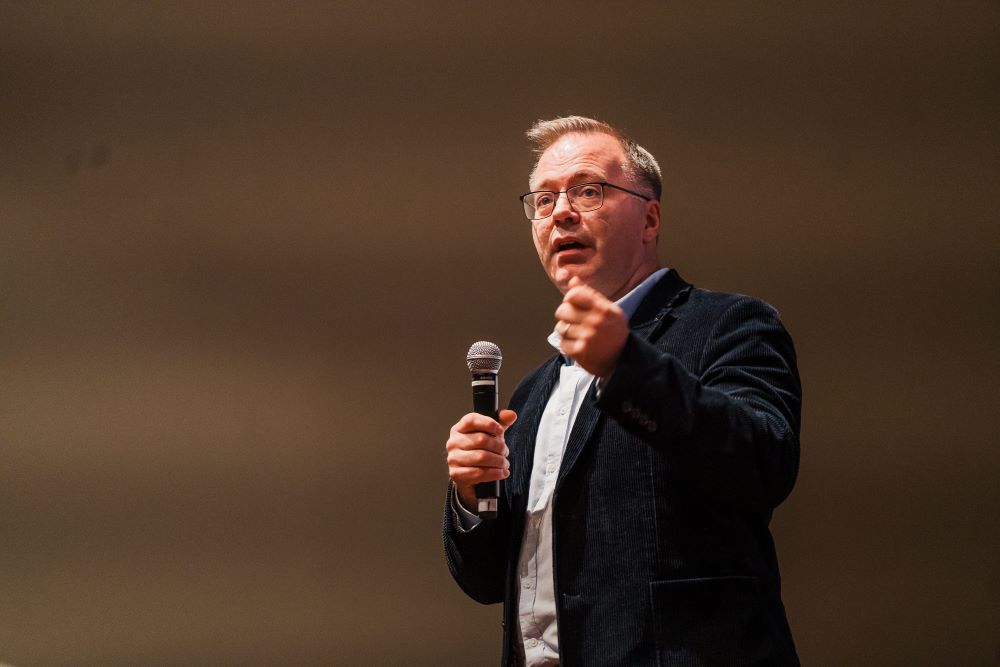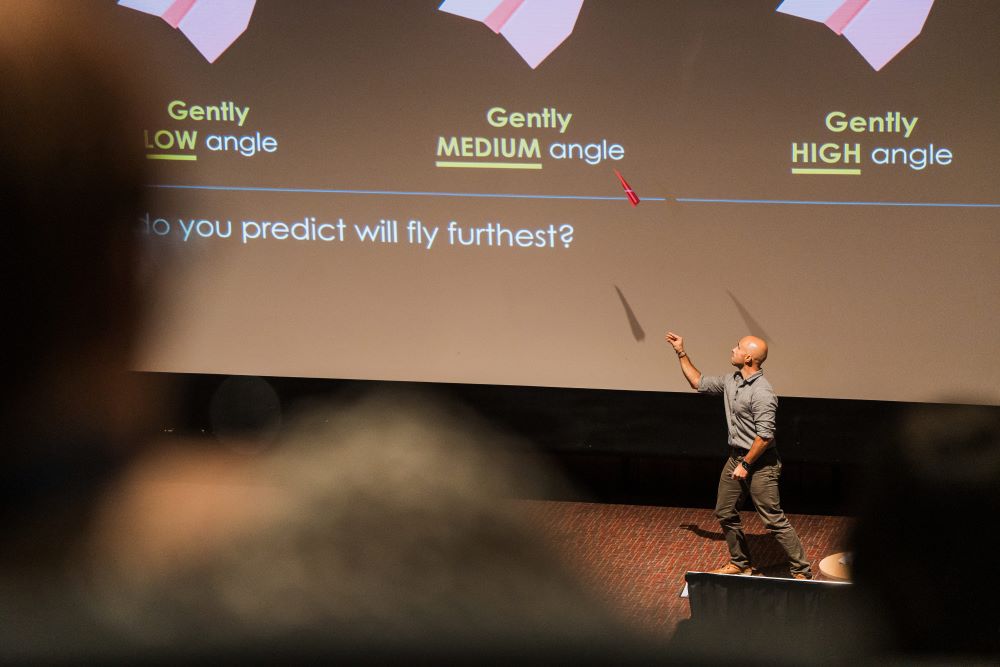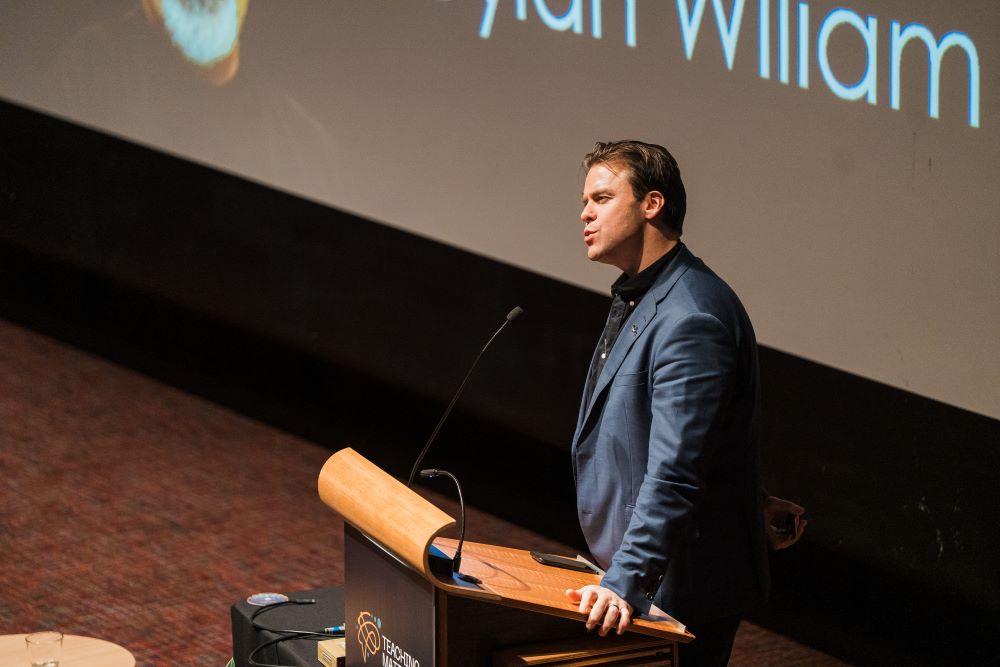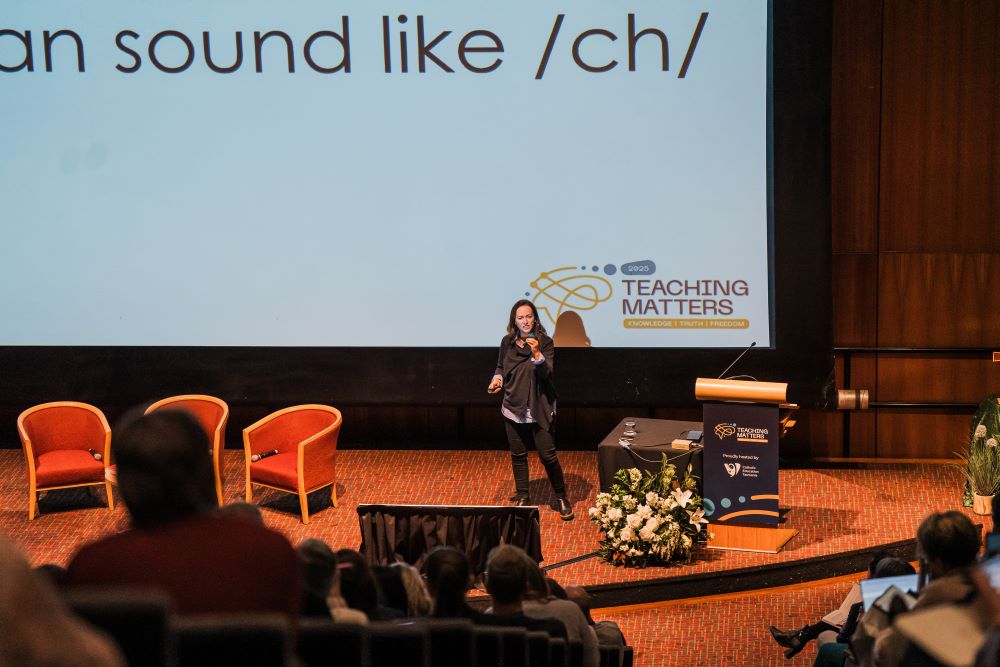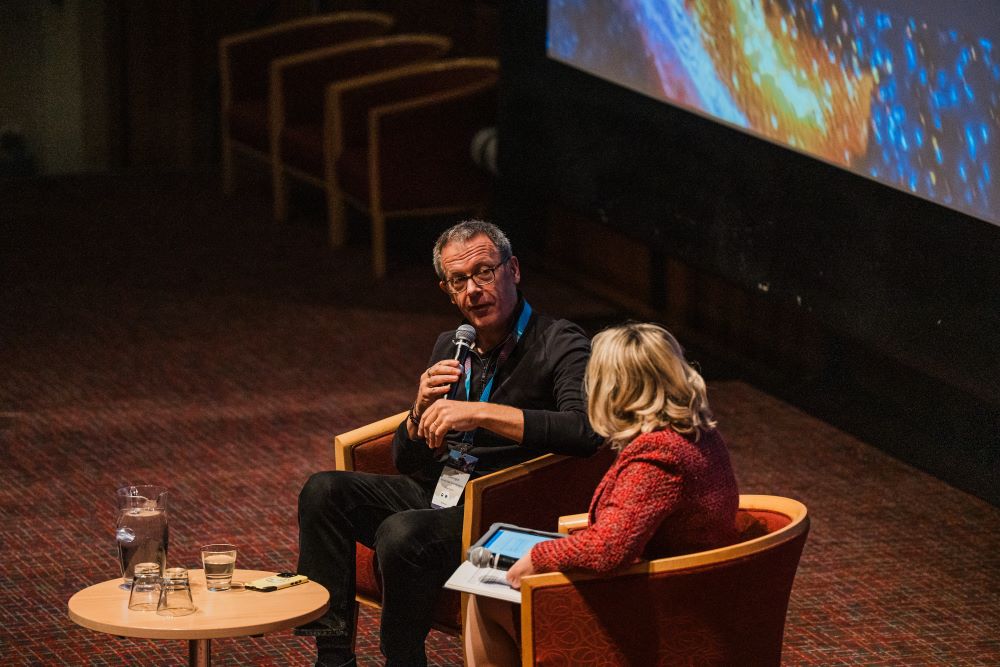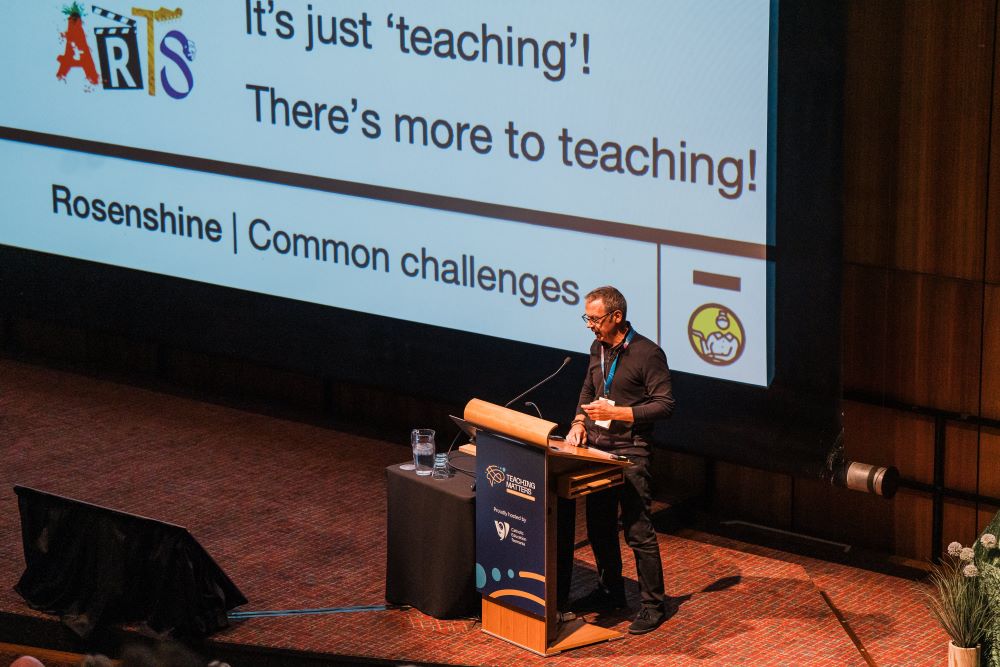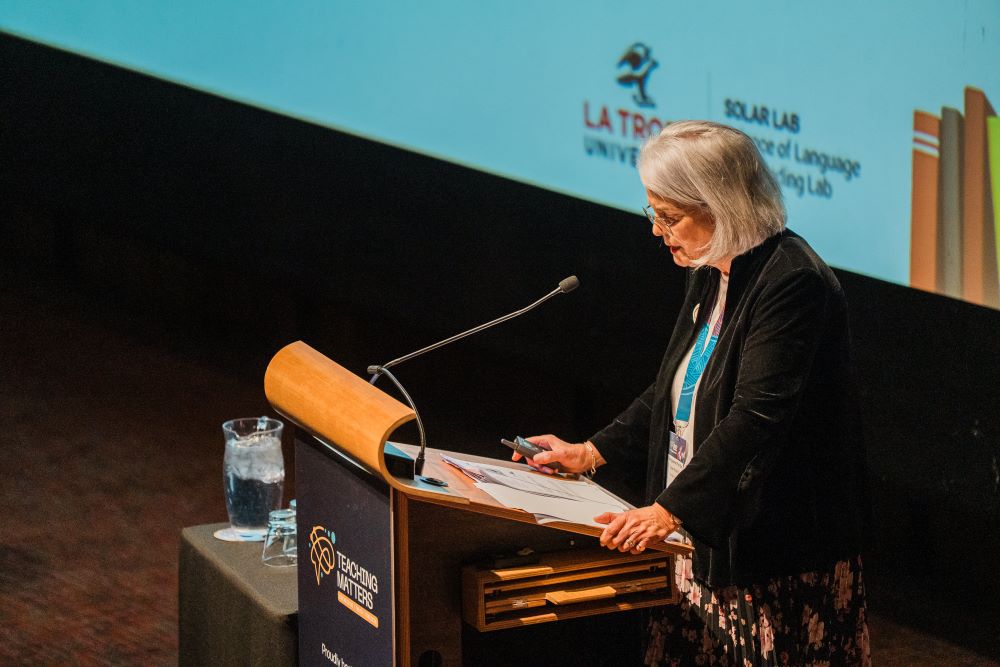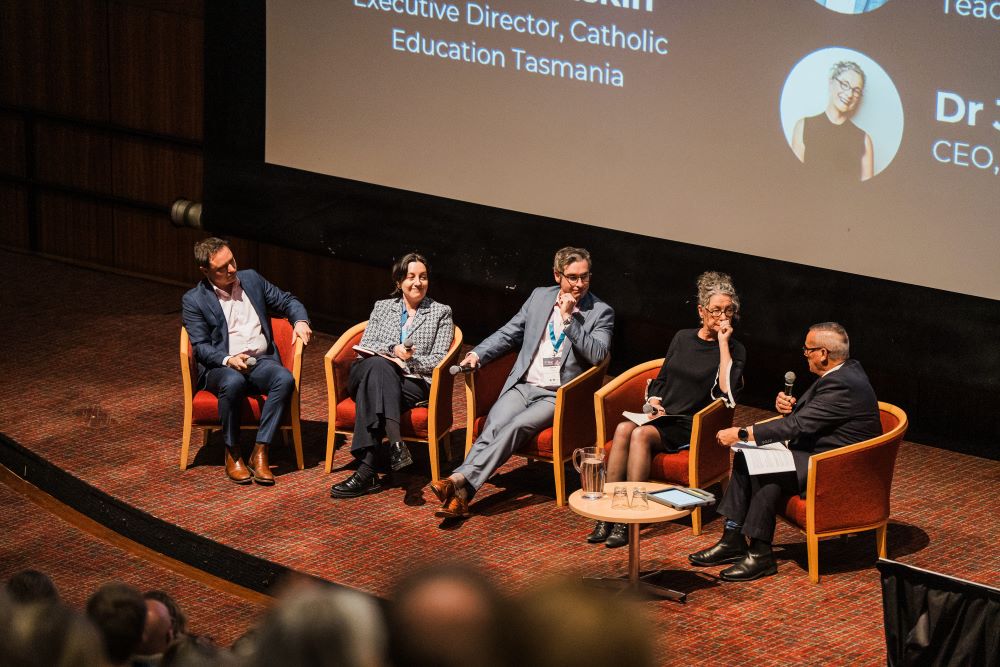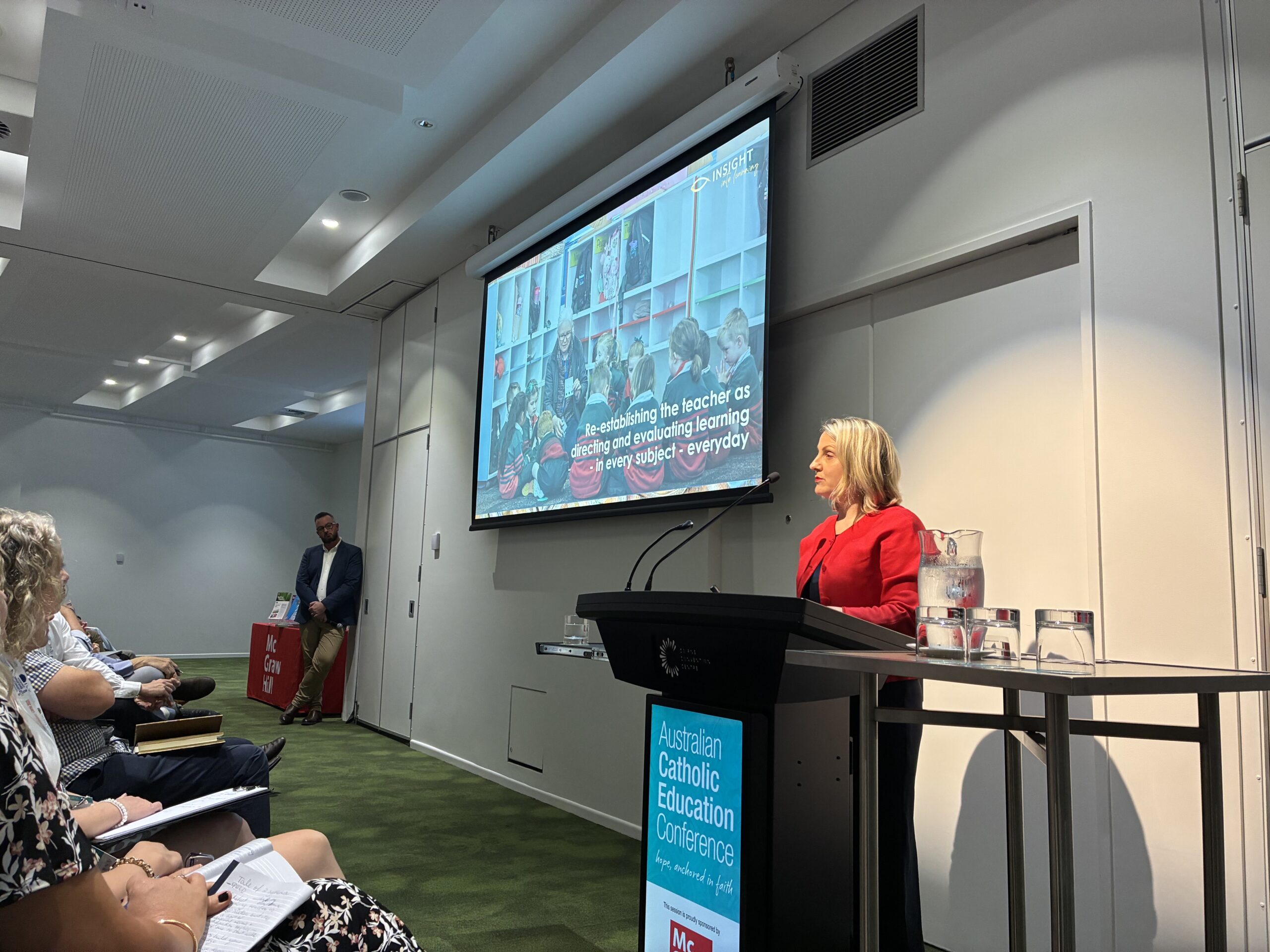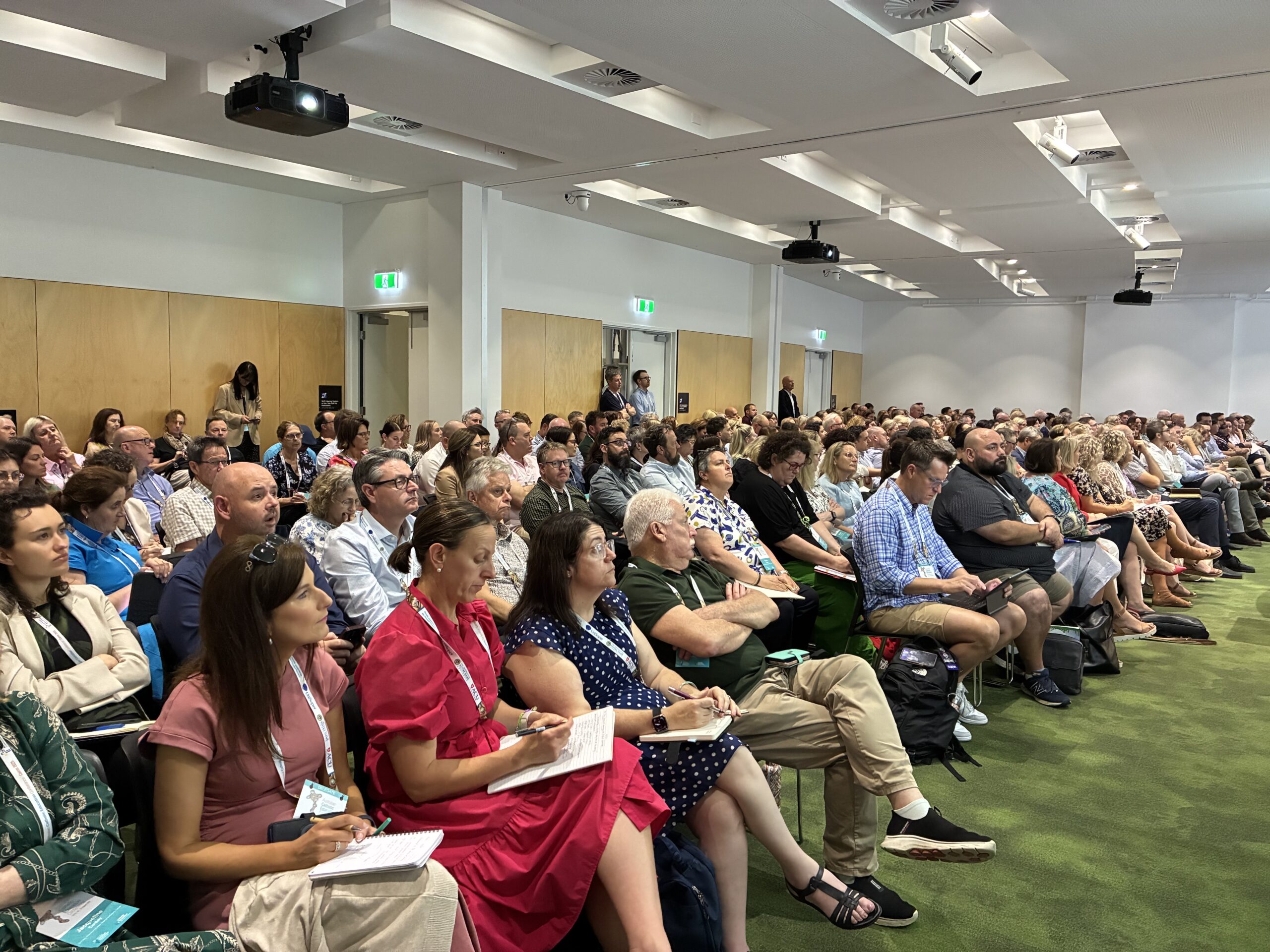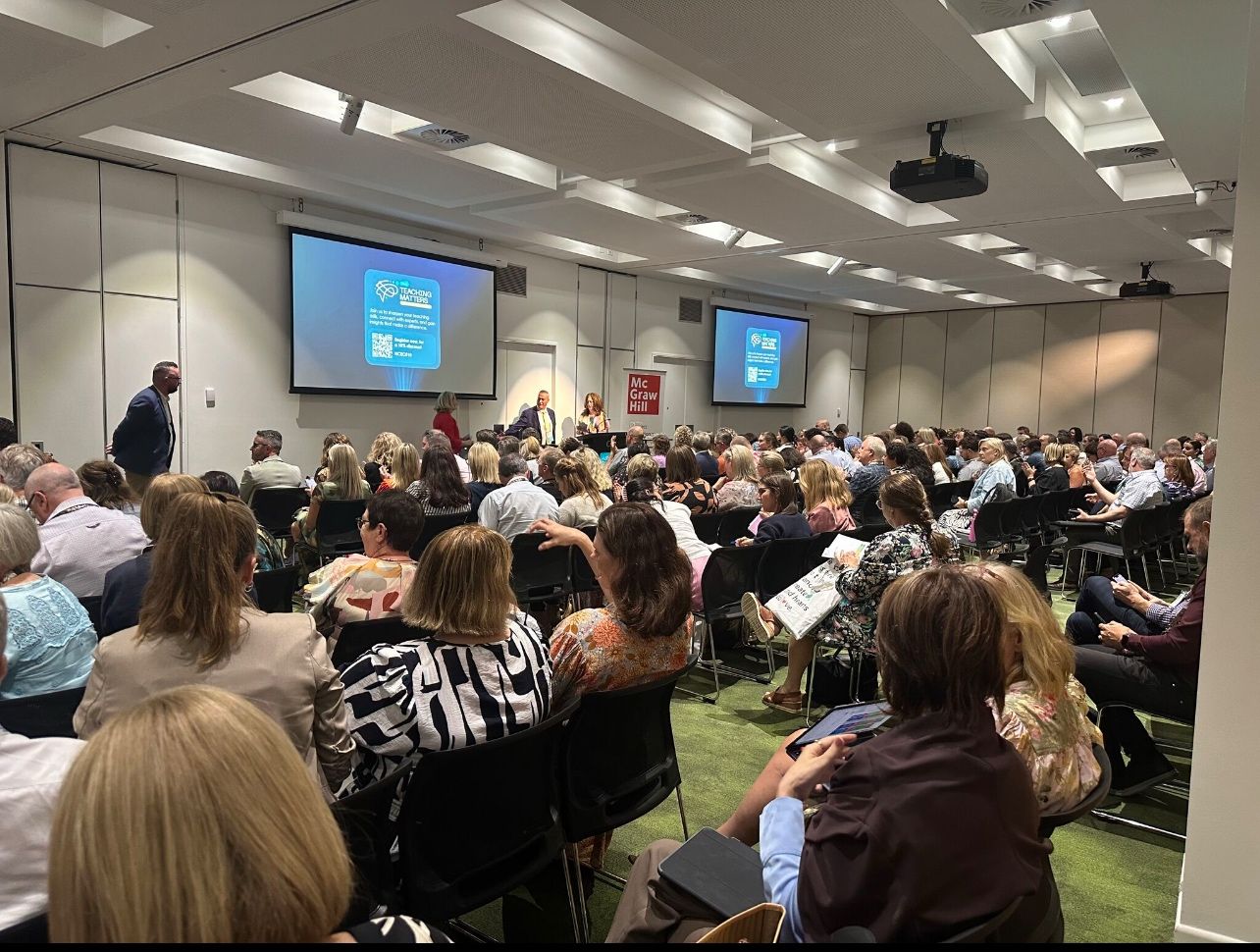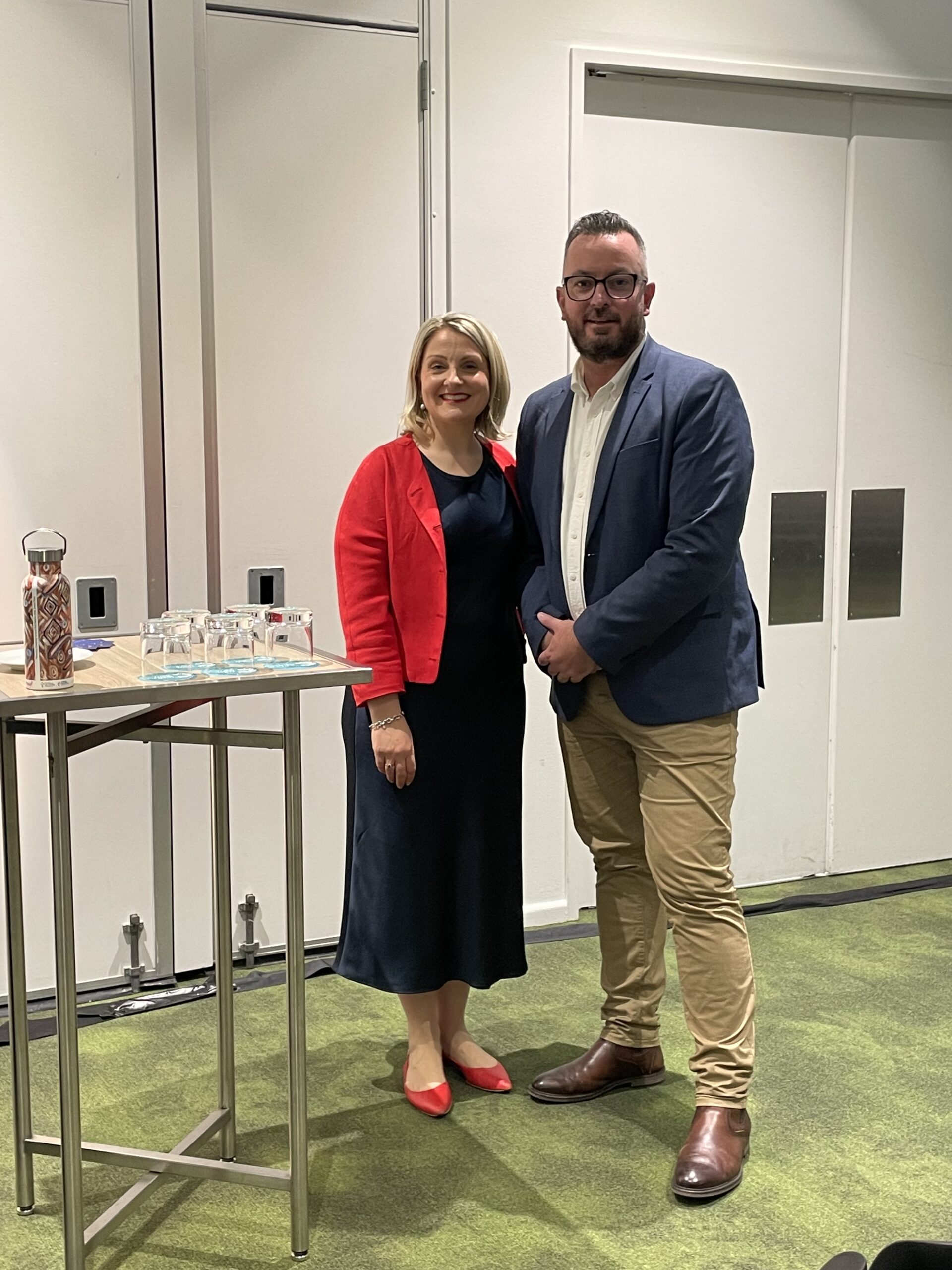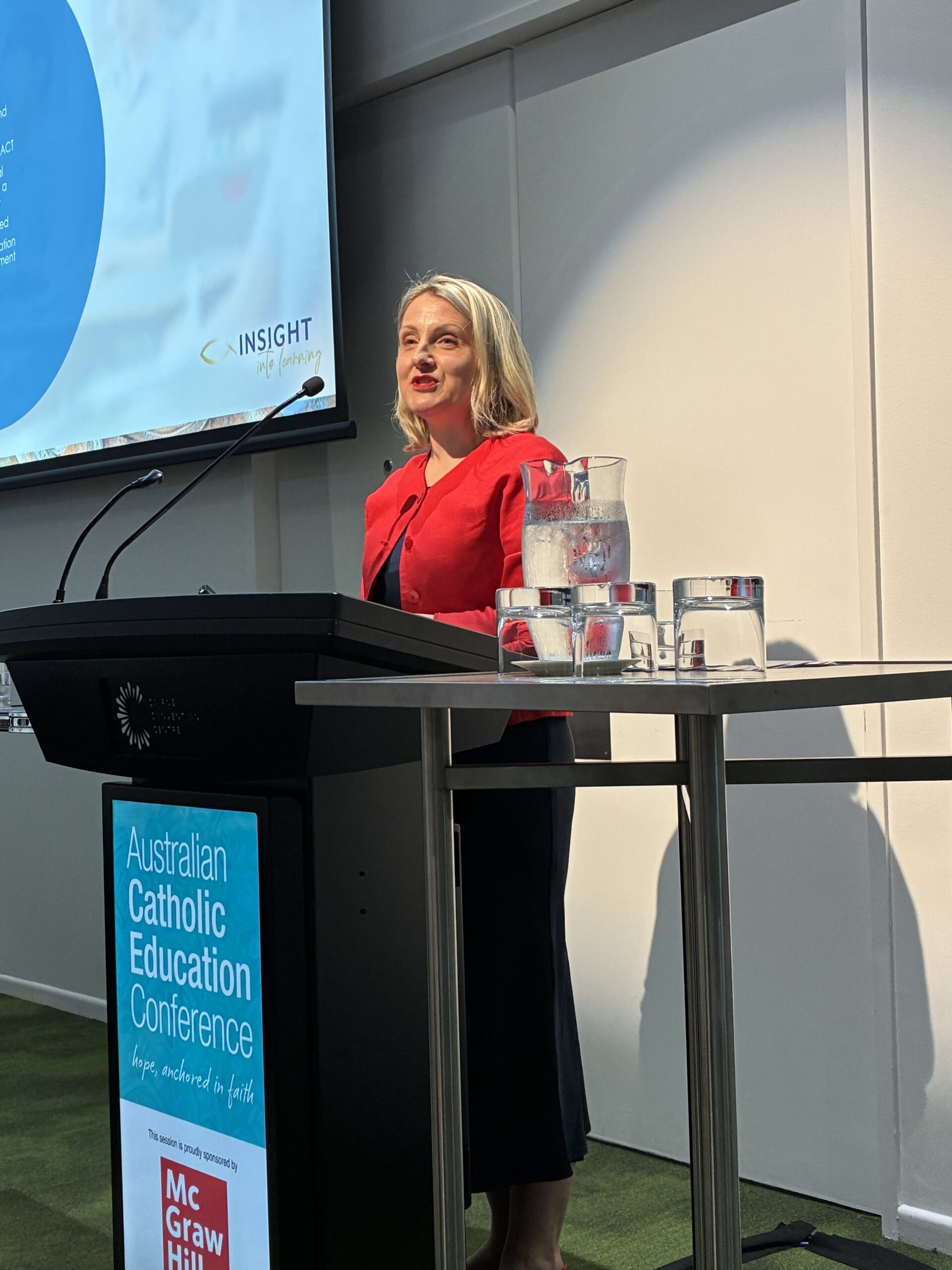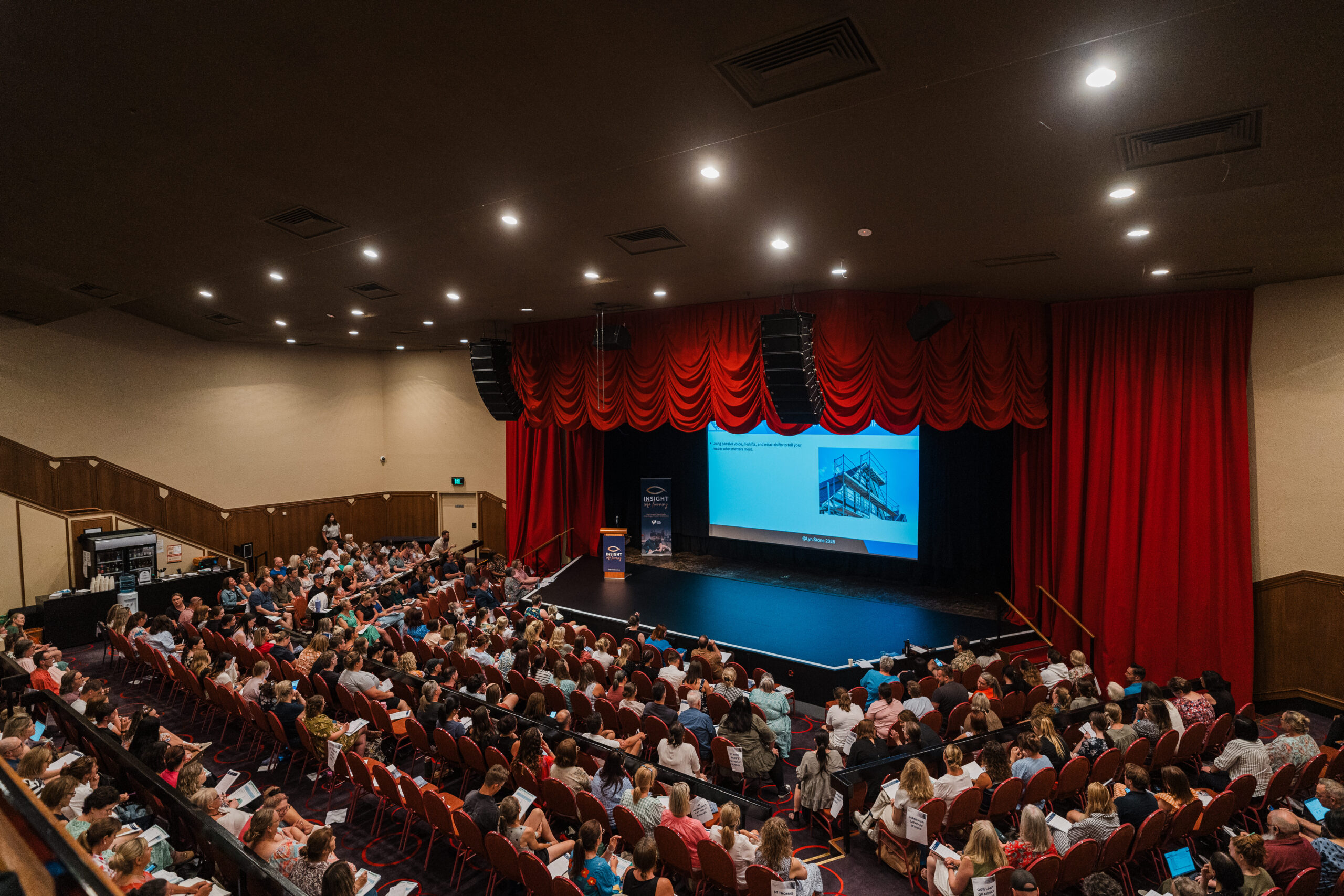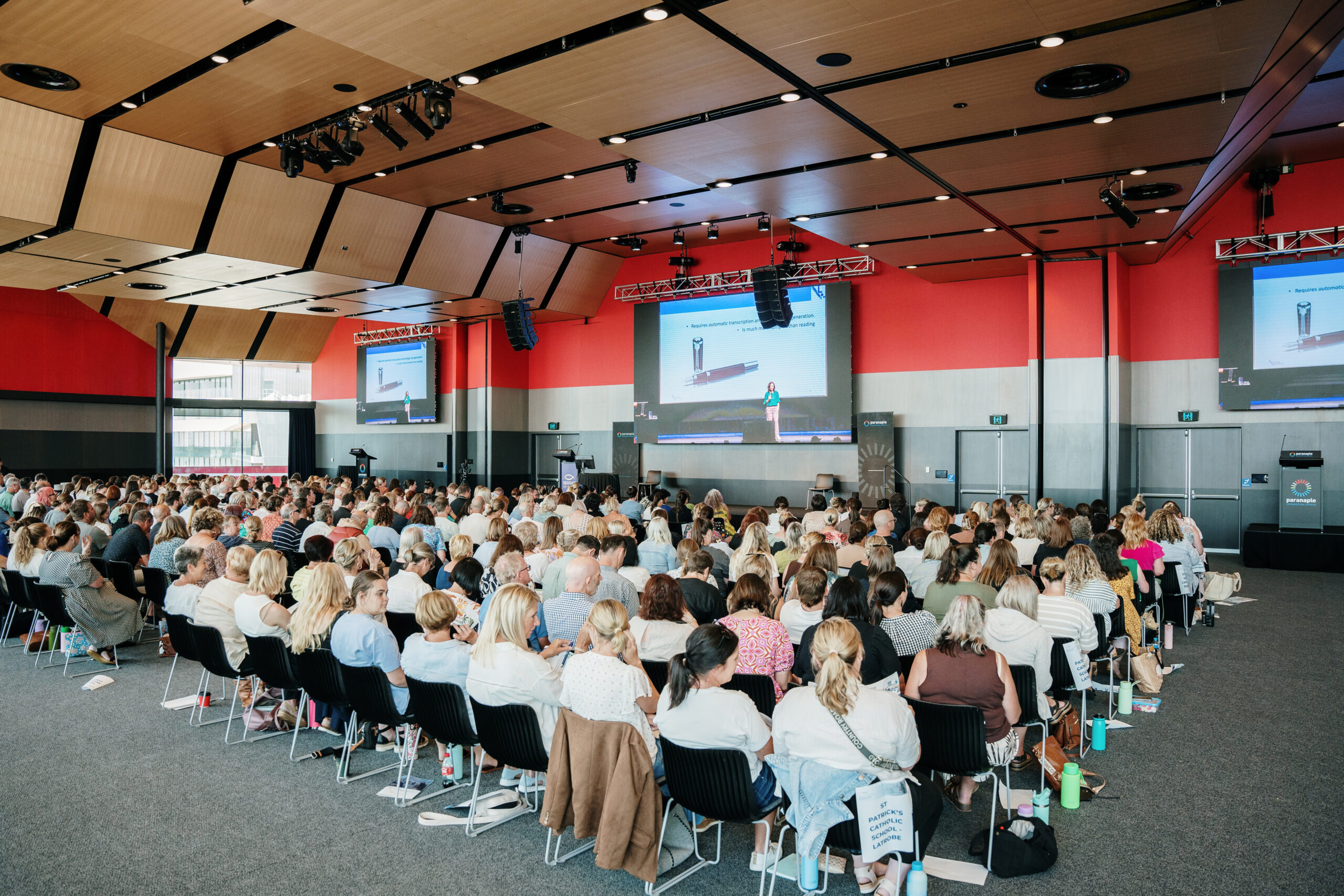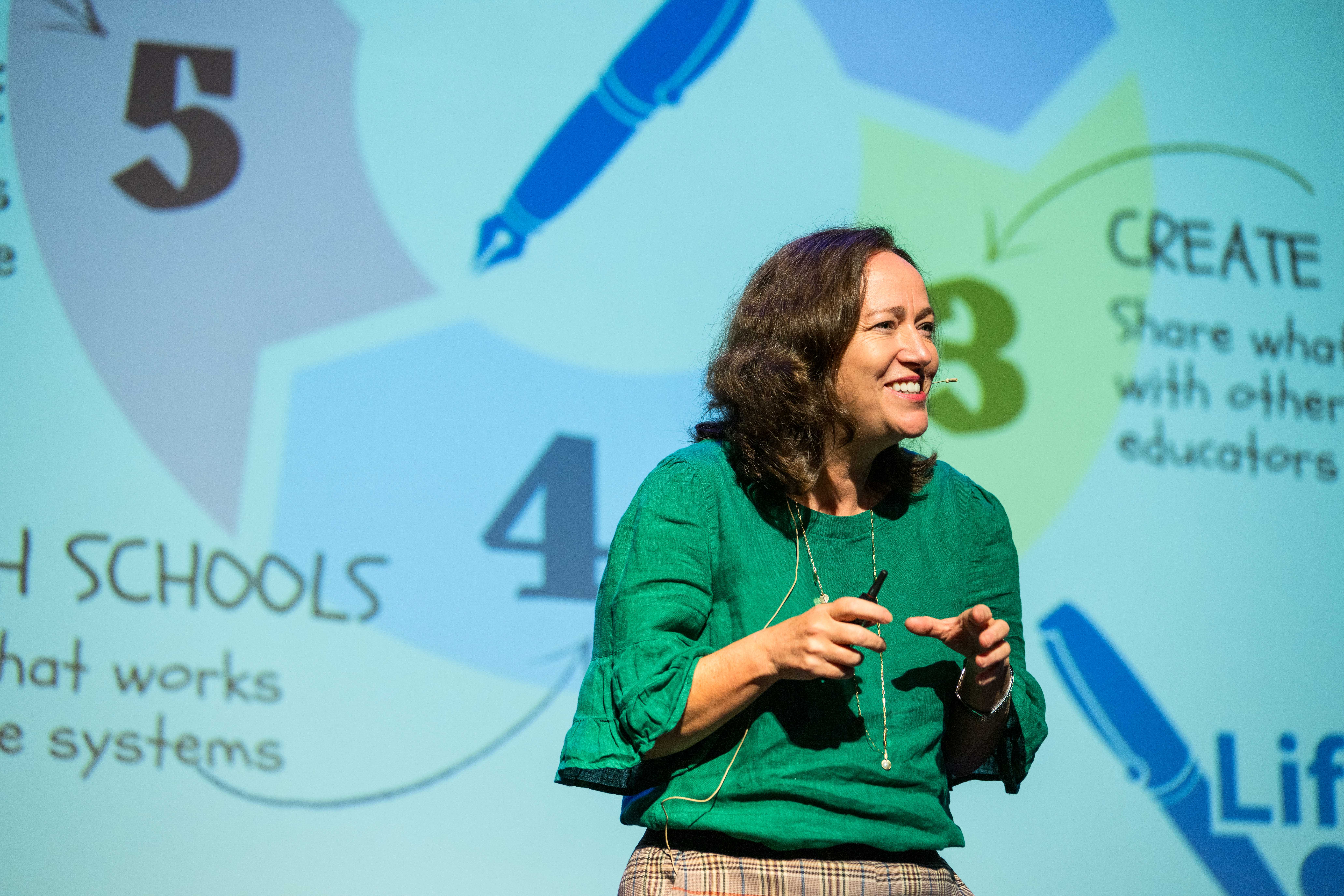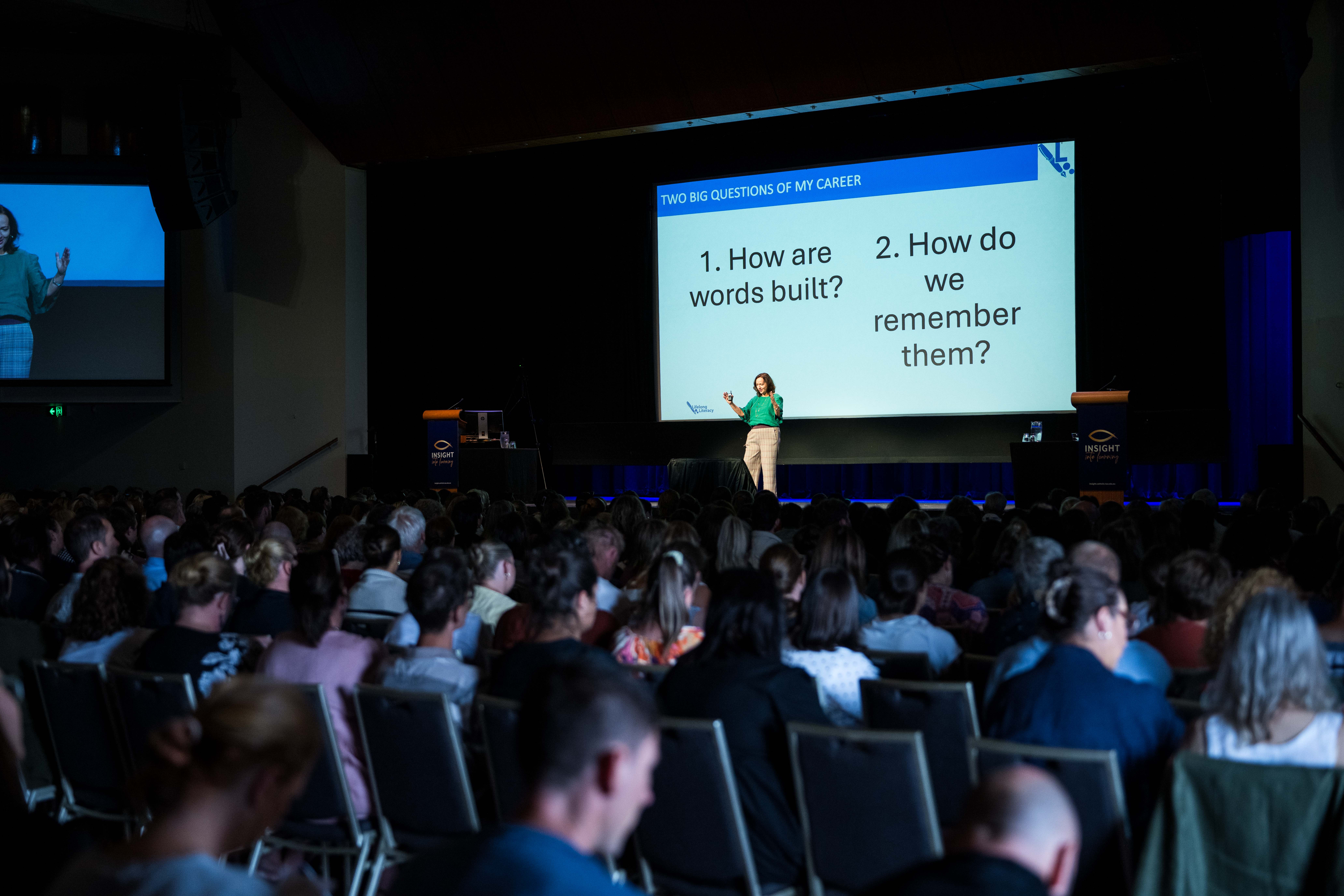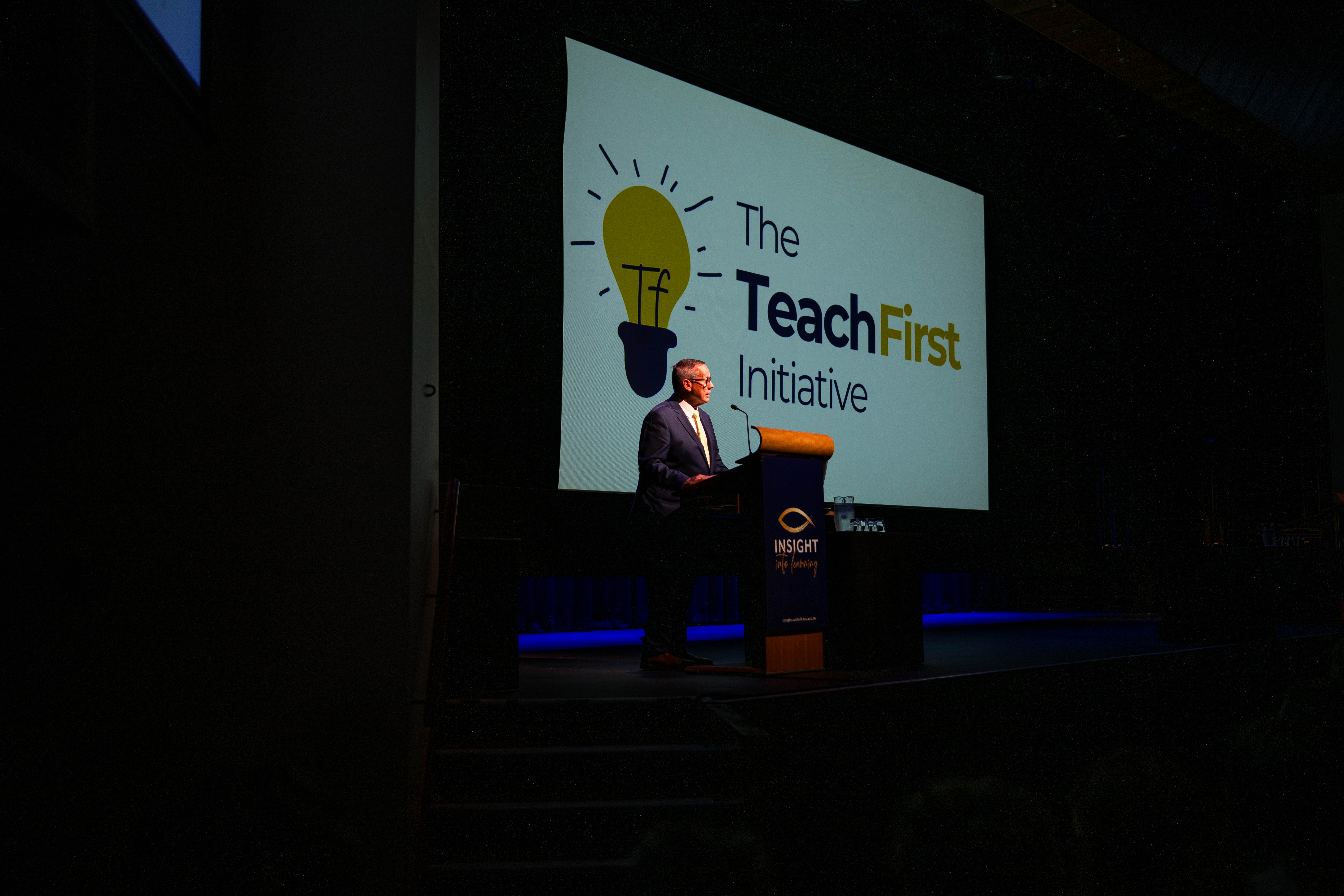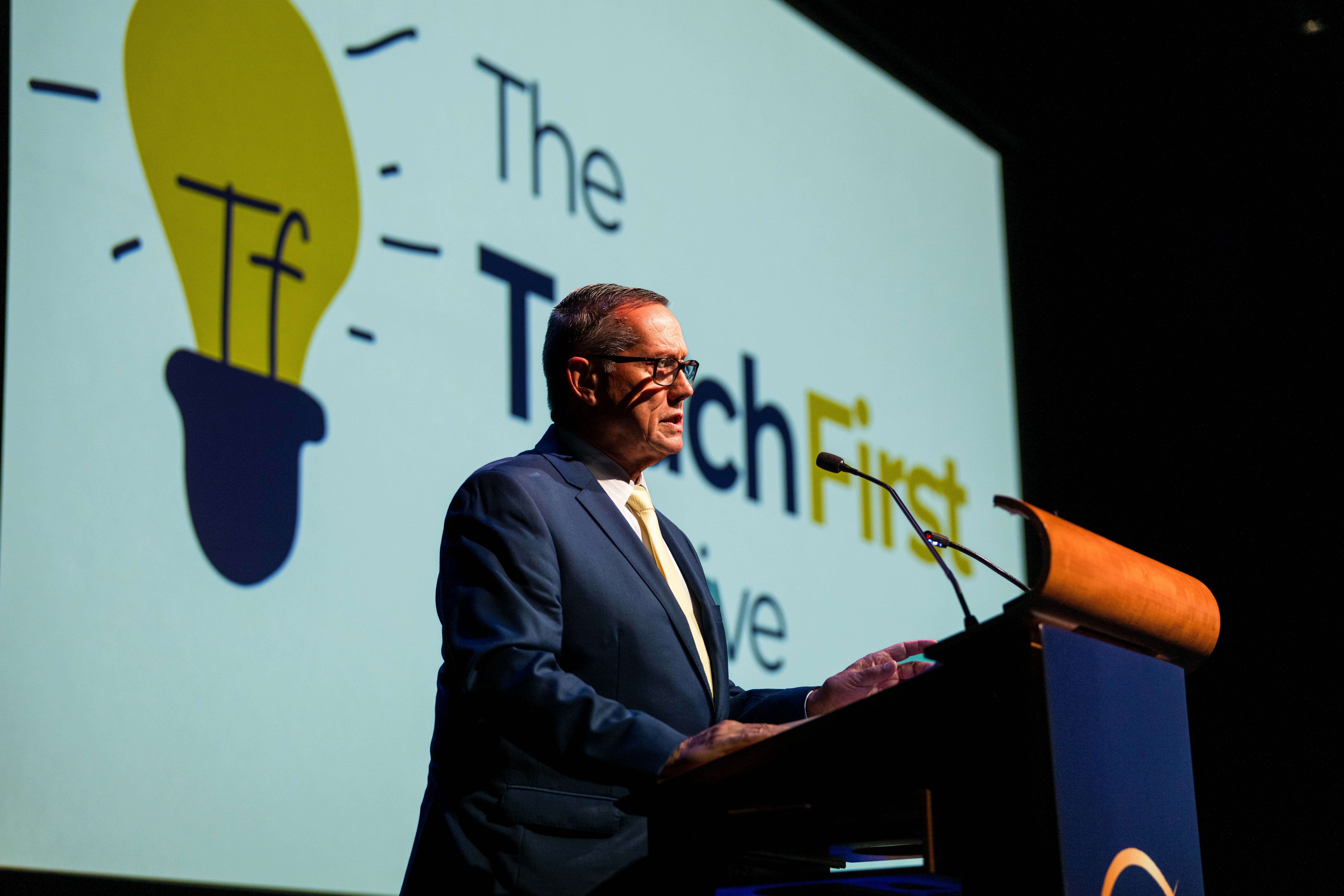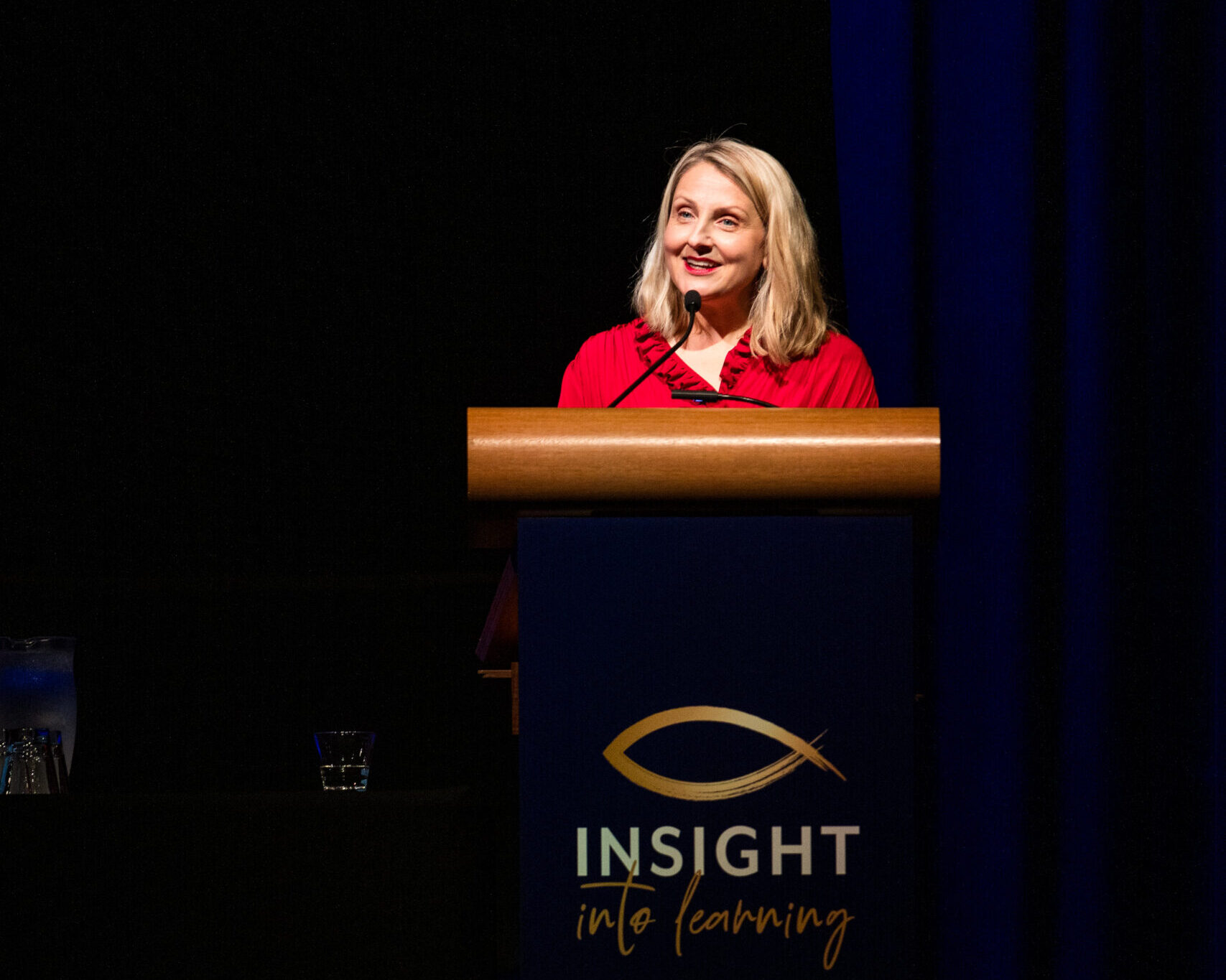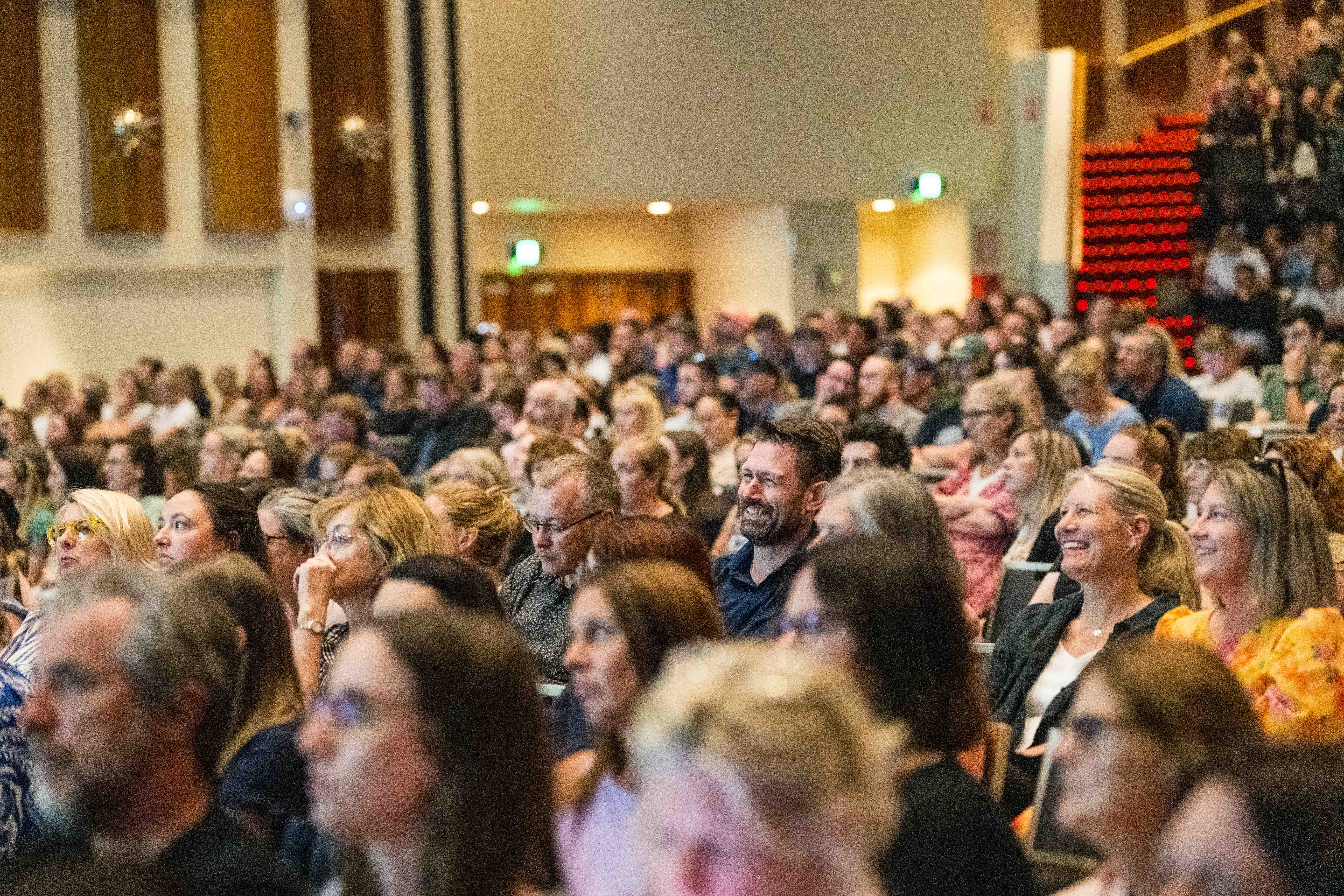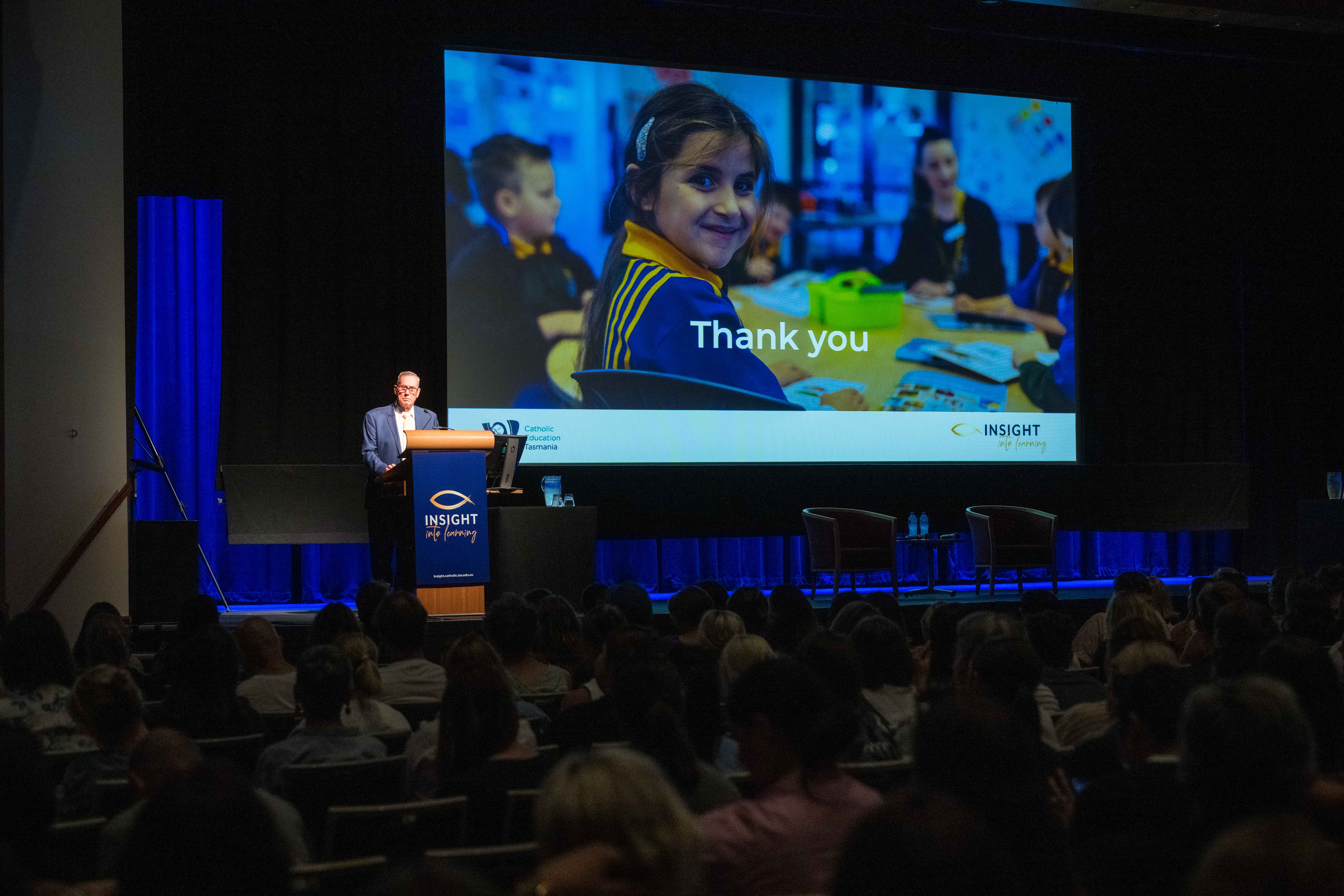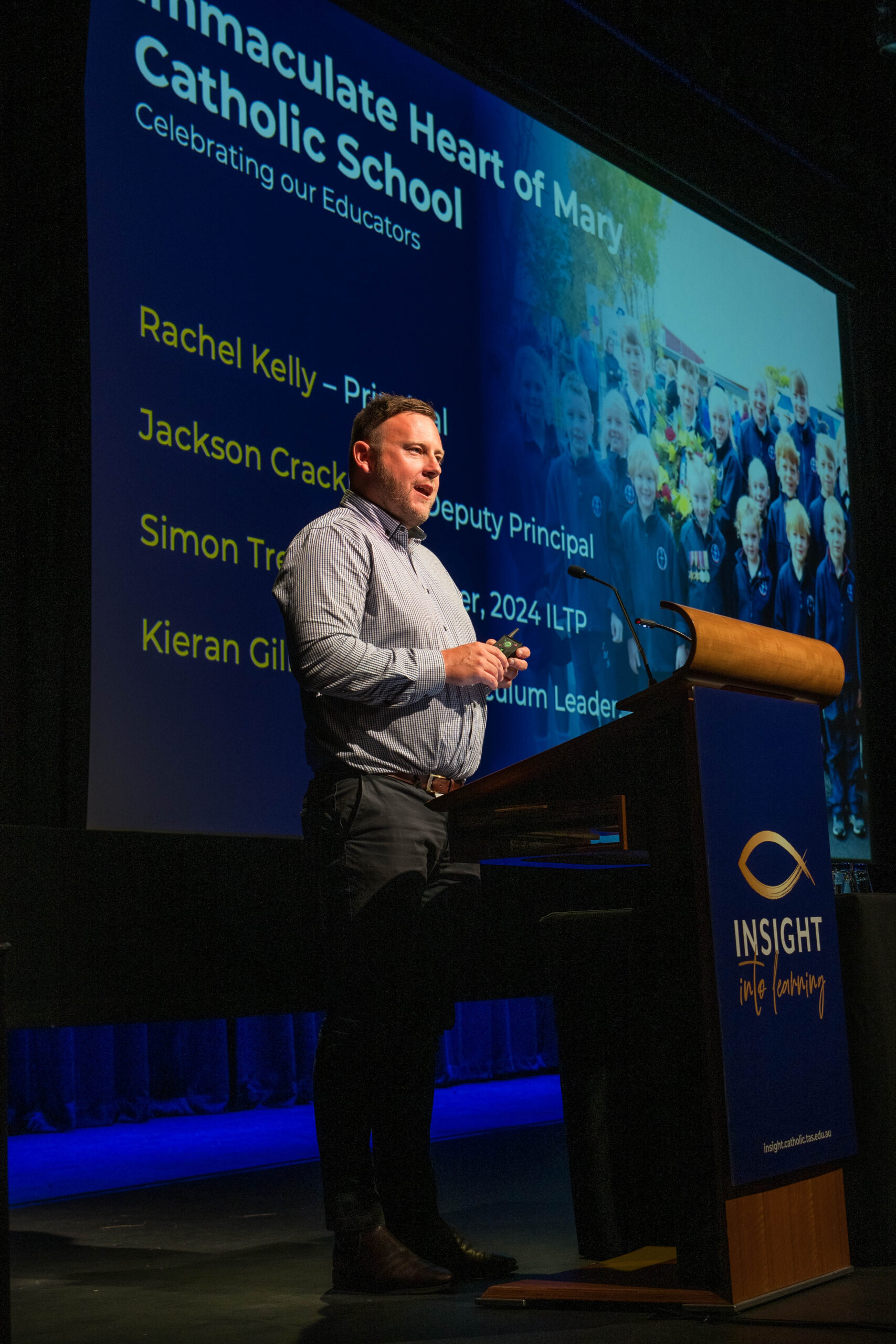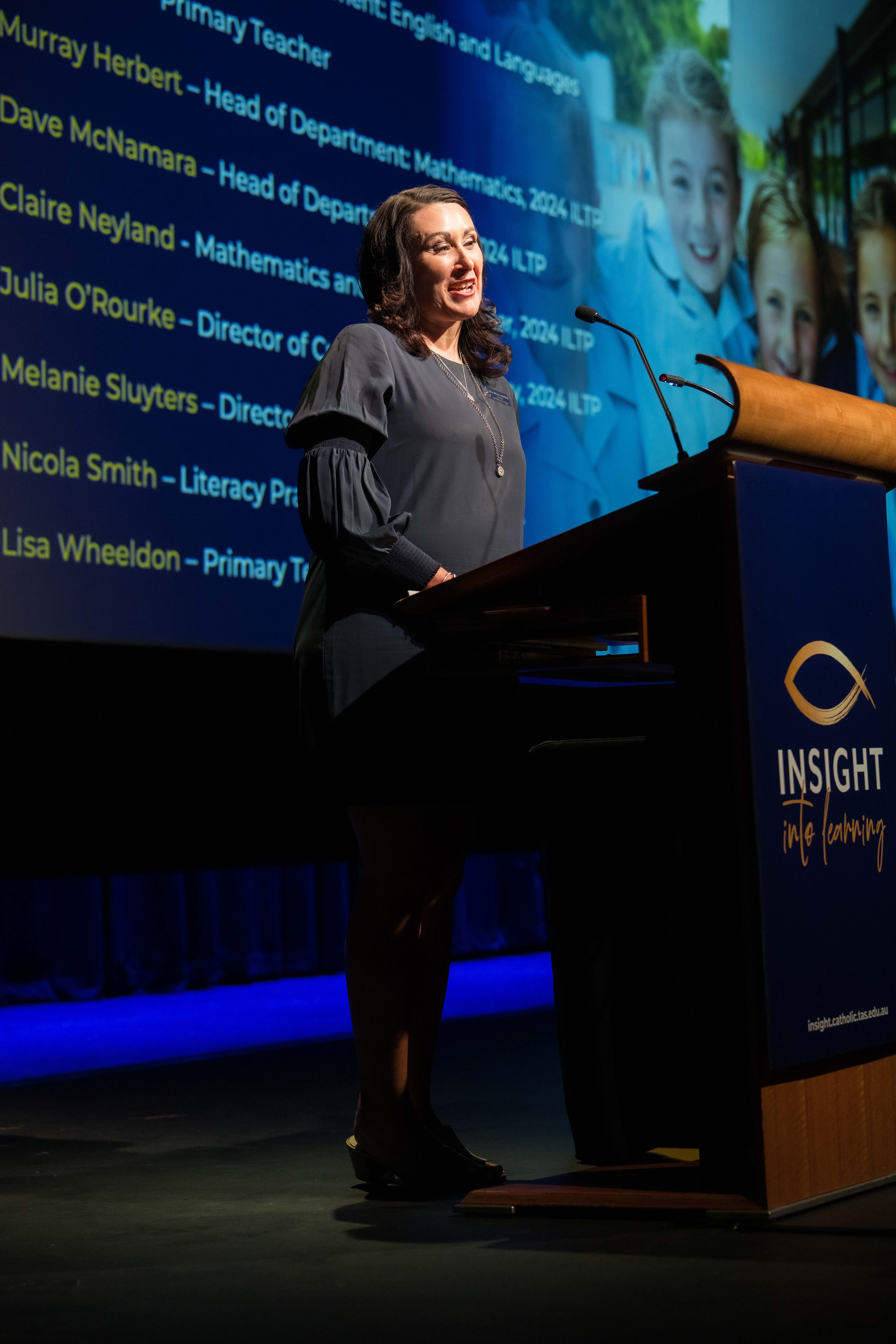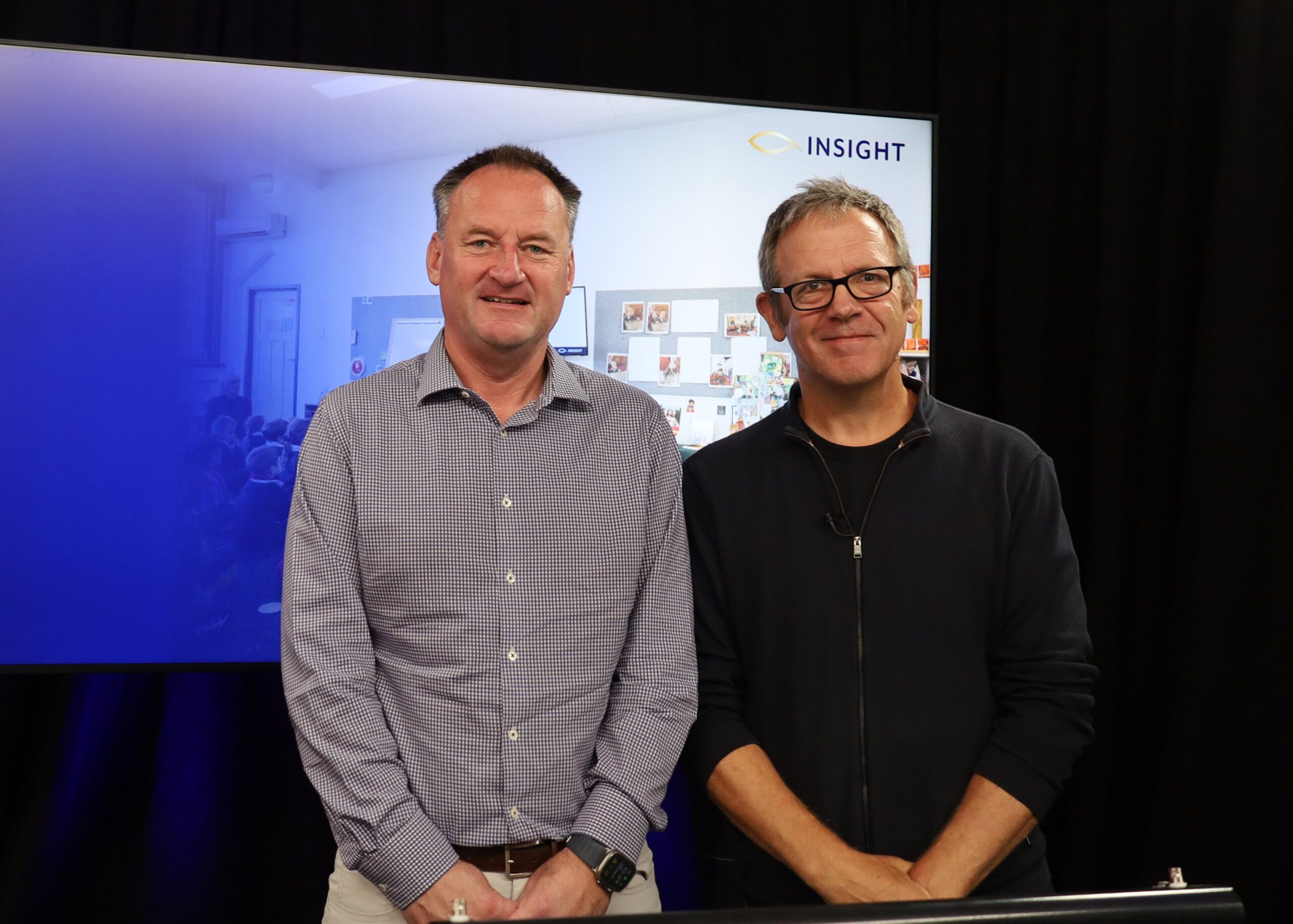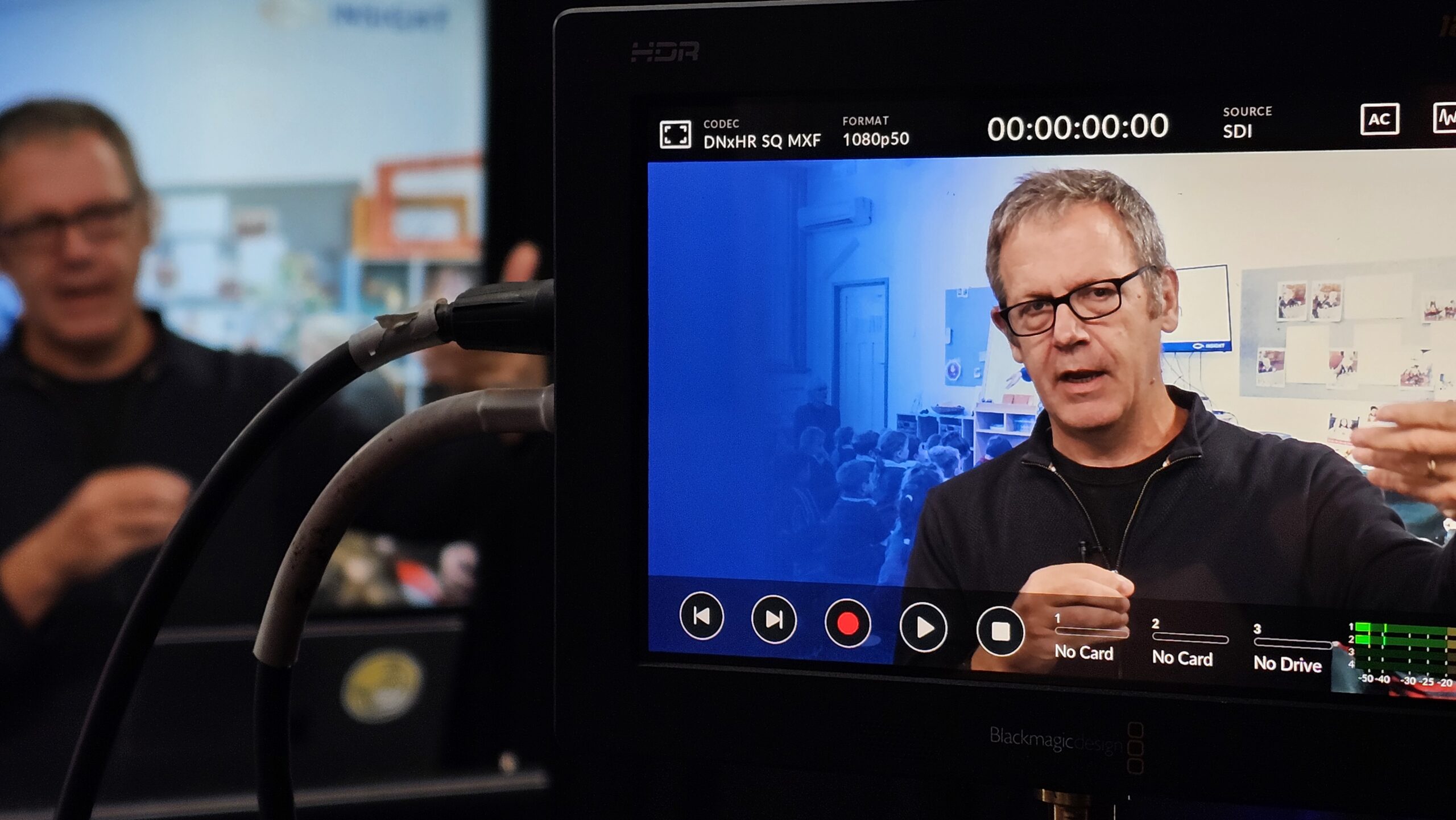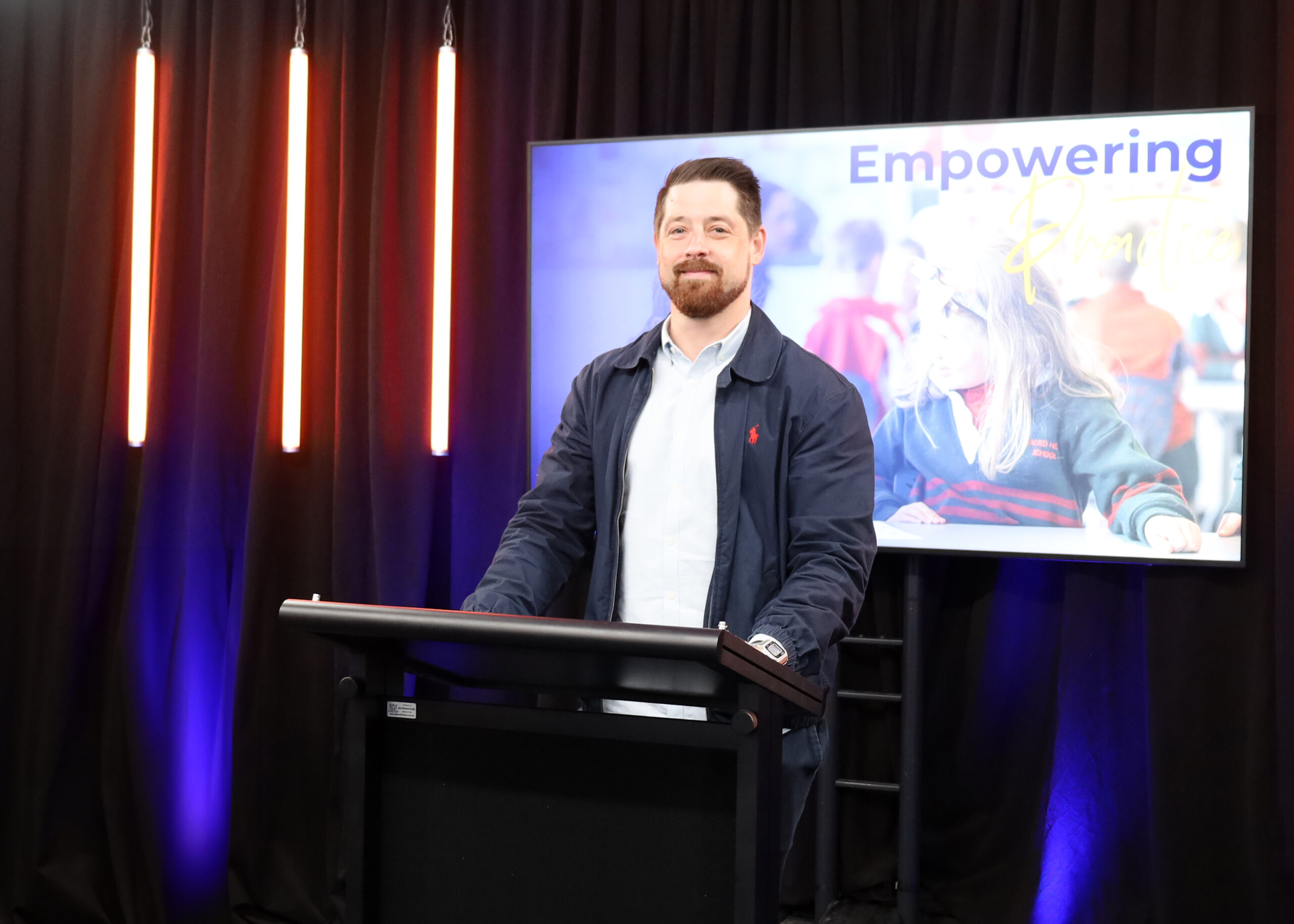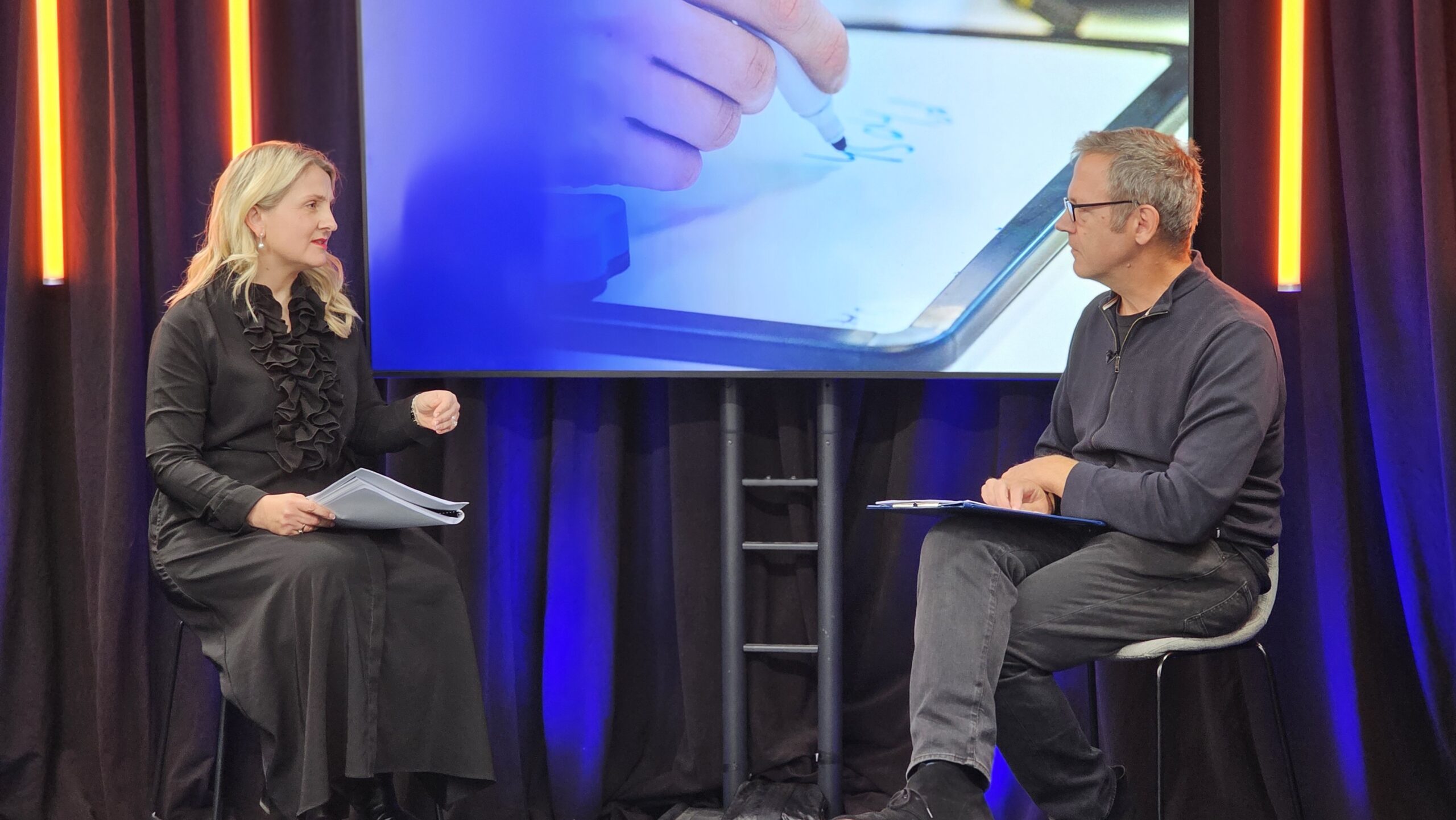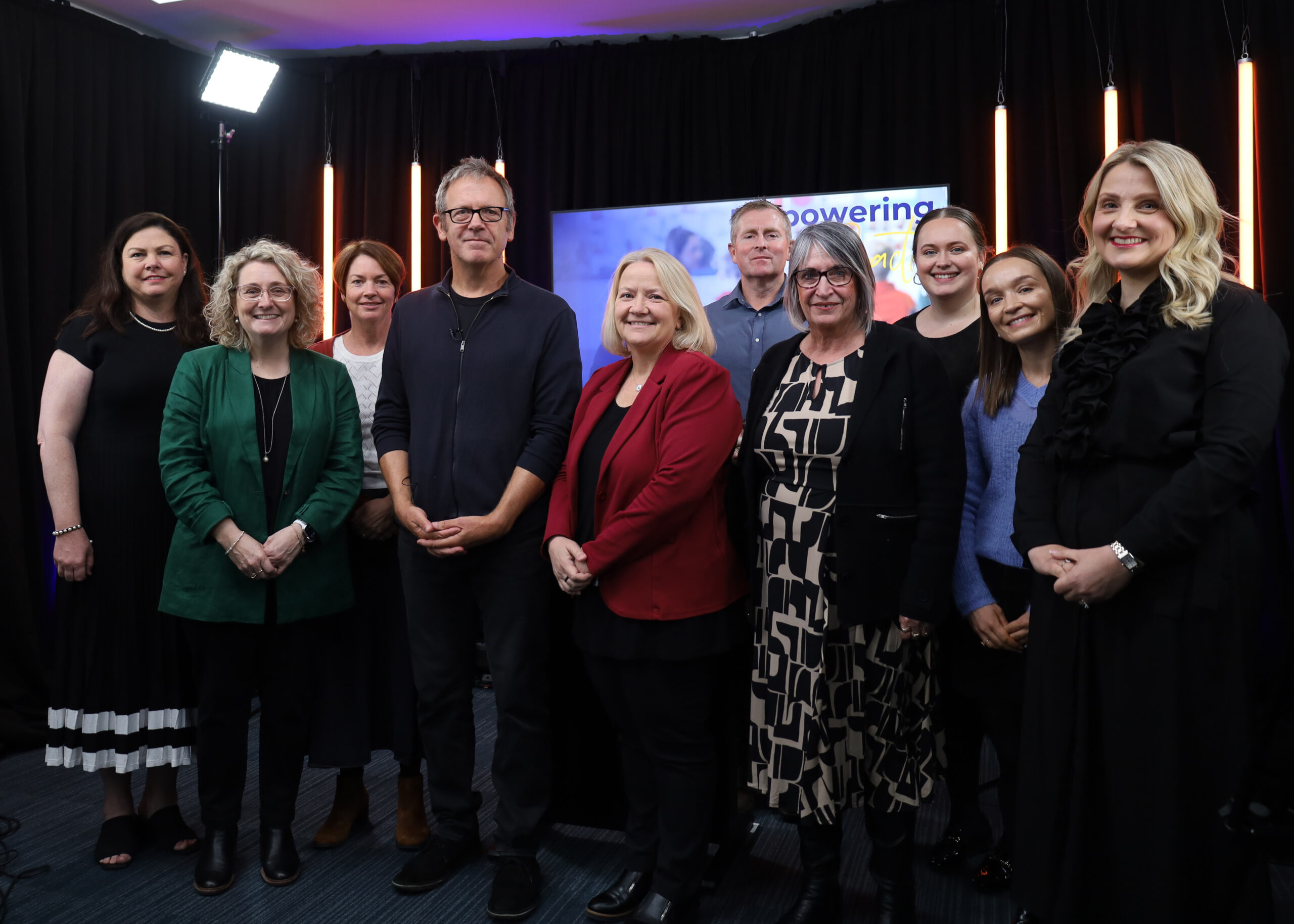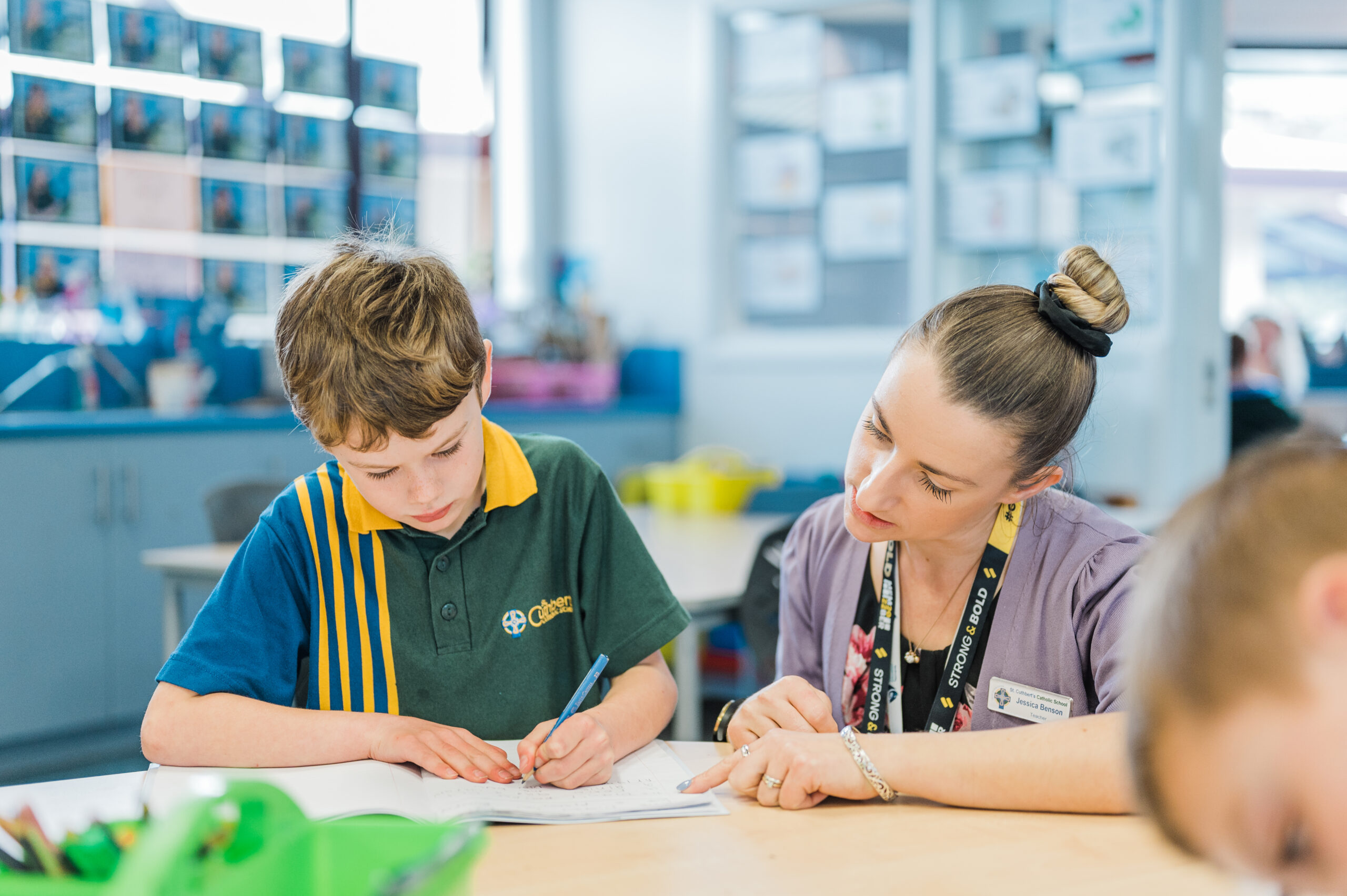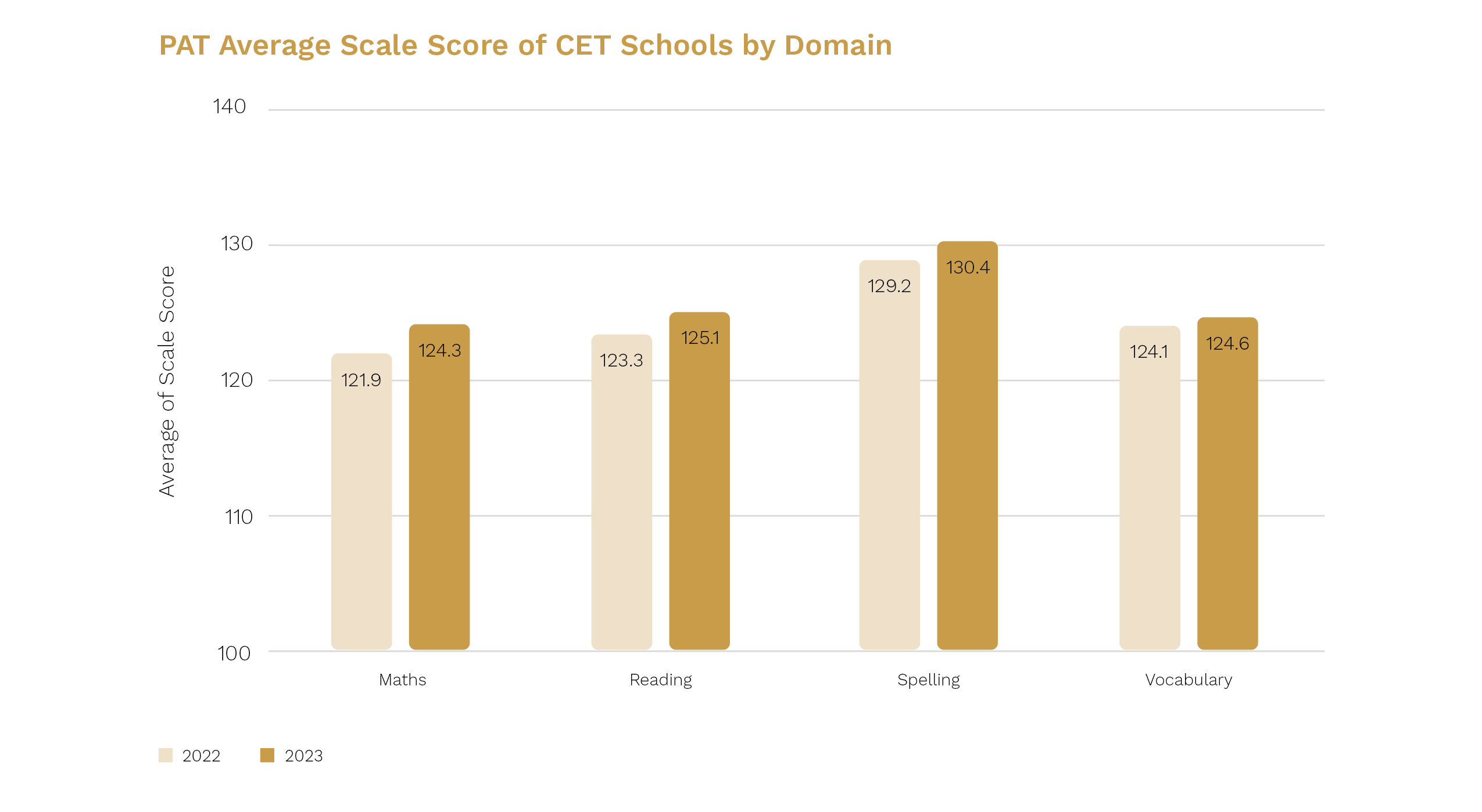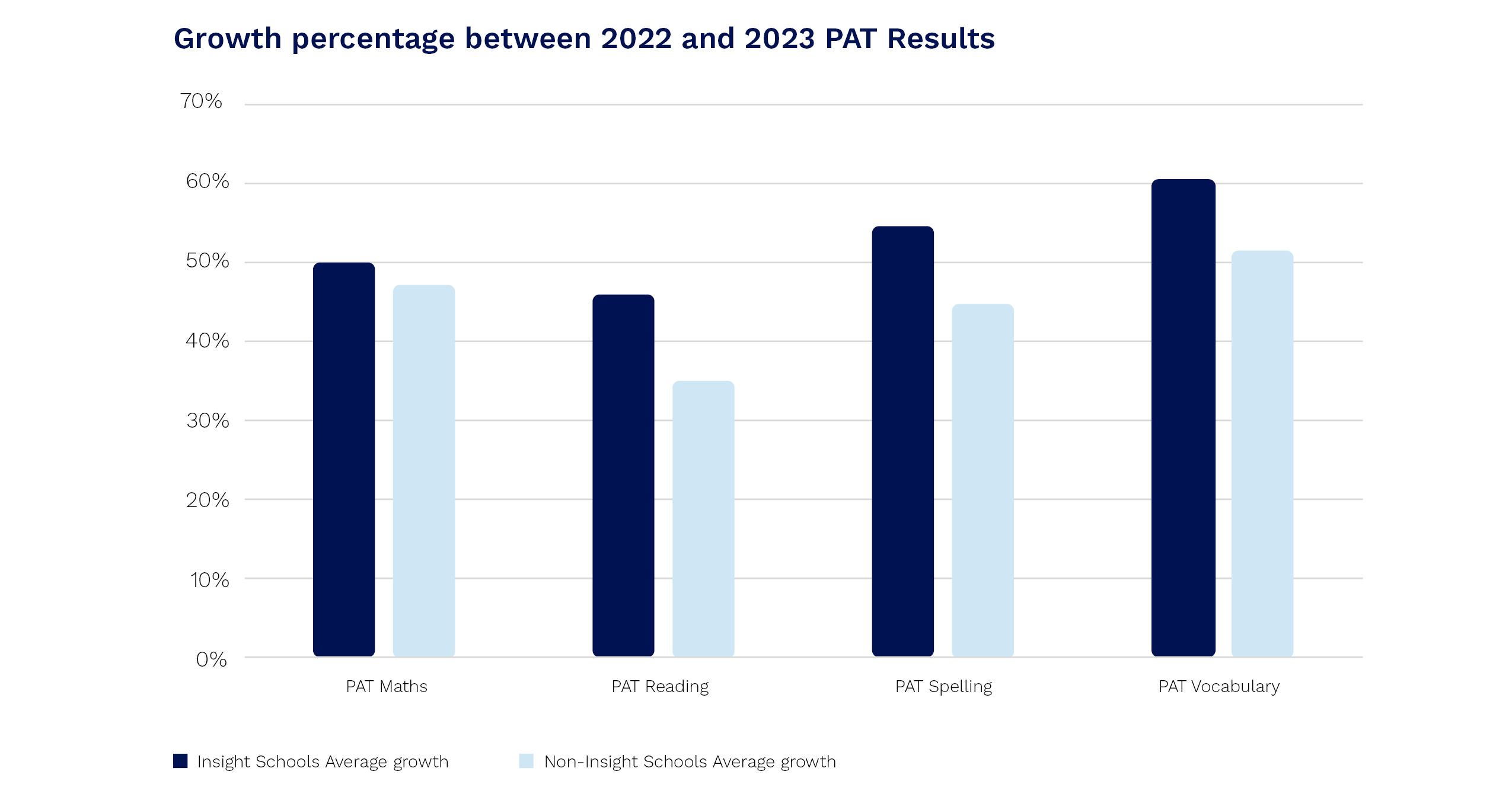Bringing global experts and local impact together
Bringing global experts and local impact together
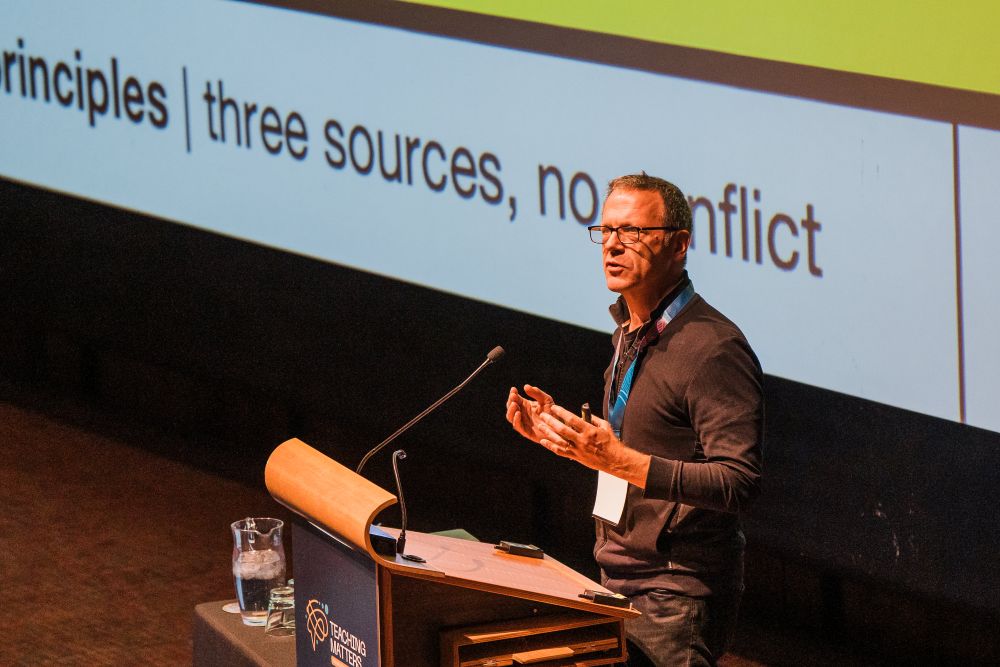
Tom Sherrington presenting at the Teaching Matters Summit
Catholic Education Tasmania is at the forefront of applying the Science of Learning, building an evidence-informed culture that is already transforming classrooms across the state and resonating nationally.
The third annual Teaching Matters Science of Learning Summit, held in Hobart from 14 to 16 September, affirmed this direction by showing how local impact is consistent with global best practice and can be replicated across schools and systems.
It also highlighted how Catholic Education Tasmania applies evidence-based approaches to strengthen learning across all subject areas, including Religious Education, helping to make the Catholic faith understandable and alive for students at every stage of their schooling.
The Summit brought together educators, teachers, administrators and leaders from across Australian, New Zealand, Britain and China for three days of learning, dialogue, and professional growth.
Delegates were given the rare opportunity to hear in depth from two of the most influential voices in contemporary education: Tom Bennett OBE, founder of researchED and behaviour adviser to the UK Government, and Tom Sherrington, internationally respected consultant and author of The Learning Rainforest and the Teaching Walkthrus series.
Their presence underlined the significance of the Summit, not just as a professional learning event, but as a global stage brought to Tasmania. Hosting these conversations locally meant world-class thinking was within reach of every delegate in the room.
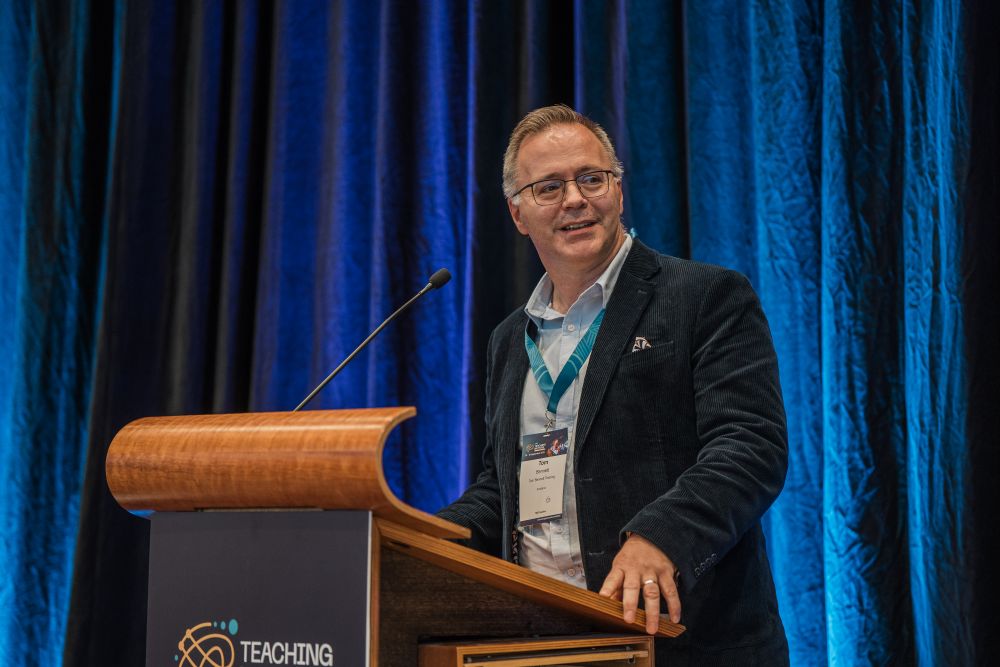
Tom Bennett OBE at the Welcome Reception
Both keynote speakers challenged and inspired with their insights into behaviour, instruction and the Science of Learning, grounding their ideas not in theory alone but in decades of lived classroom experience.
Together they highlighted that the Science of Learning is not just another trend, but a developing field of evidence that is giving teachers practical ways to improve their practice.
In conversation with Catholic Education Tasmania’s Executive Director Dr Gerard Gaskin, Tom Bennett reflected on the disruptive impact of evidence-informed practice in education. Bennett, who coaches teachers and schools in all aspects of behaviour management and research integration, noted that it challenged long-held assumptions.
“The Science of Learning is the application of the scientific method to teaching and learning which is something that didn’t happen for a very long time.”
He said clinging to methods that hinder rather than help children was no longer an option.
“When it comes to observing what seems to work in the classroom, I’m fairly bullish about making sure the teachers know about very simple practices that help children to learn and seem to work everywhere you go around the world.”
Tom Sherrington continued this line of thought, emphasising that research gives teachers tools to be more effective in the classroom.
“Lots of teachers really benefit from having a really good understanding that we have to get children to generate ideas, to practice using things, to break things down into small steps,” he said.
His emphasis on inclusion was also clear, noting that anything less than the active participation of the whole class was not good enough. “If you have that lens of every single child matters, literally without exception, it just changes your whole thinking.”
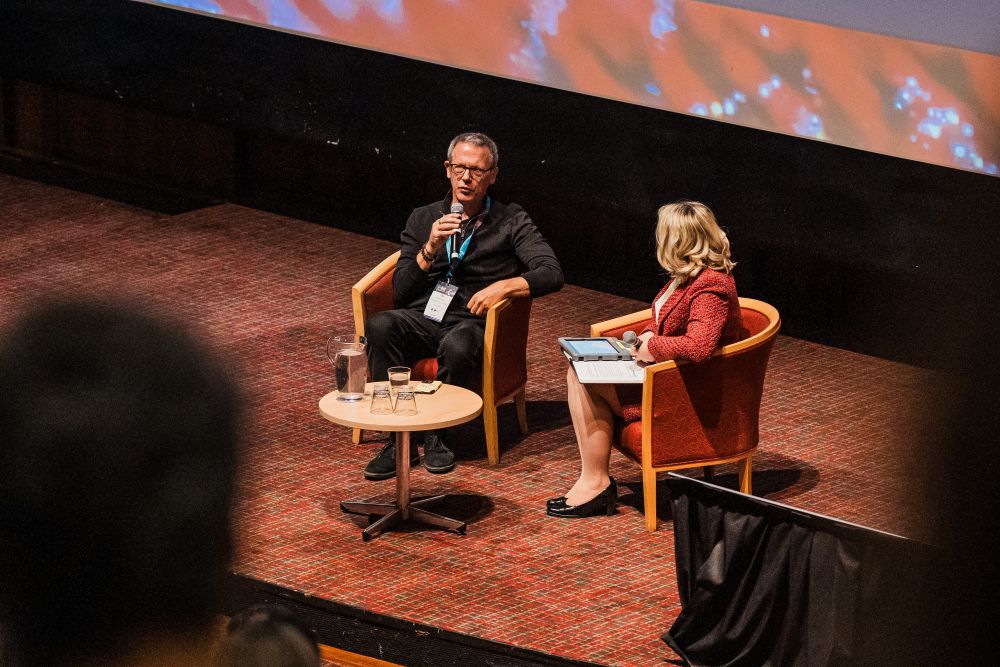
Tom Sherrington Q&A with Jennifer White
Together, the two keynote speakers framed the Summit as part of a global conversation, one in which Catholic Education Tasmania is already playing a significant role.
The Summit also provided delegates with opportunities to dive deeper through concurrent sessions, panel discussions, and informal gatherings such as breakfast with the experts. Topics ranged from early years education to system-wide transformation, reflecting the breadth of work underway across schools.
For Catholic Education Tasmania, these advances in pedagogy are not only reshaping classroom practice in subjects like mathematics, science and literacy, but also enriching the way Religious Education is taught.
By drawing on the Science of Learning, teachers can help students gain deeper knowledge of their faith, develop clearer understanding, and make more meaningful connections. The impact of this is being witnessed in the way students engage with their faith—showing confidence in prayer, compassion in action, and a growing sense of how their learning connects to life.
What emerged across the three days was not only a wealth of practical strategies but also a strong sense of community.
Teachers and leaders were reminded that they are part of a movement that extends beyond their individual classrooms—an international effort to put evidence into practice and to use the Science of Learning to achieve the best possible outcomes for students.
Hear more from Tom Bennett OBE and Tom Sherrington in conversation with Dr Gerard Gaskin


